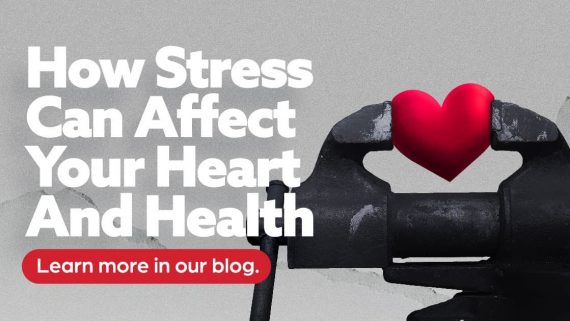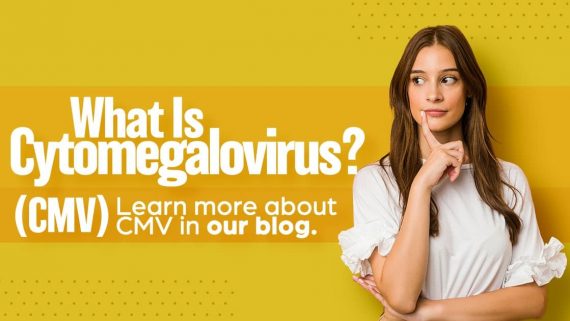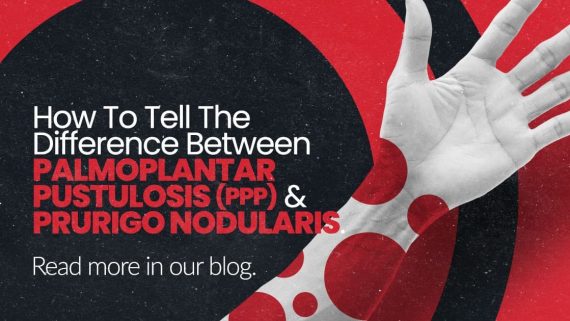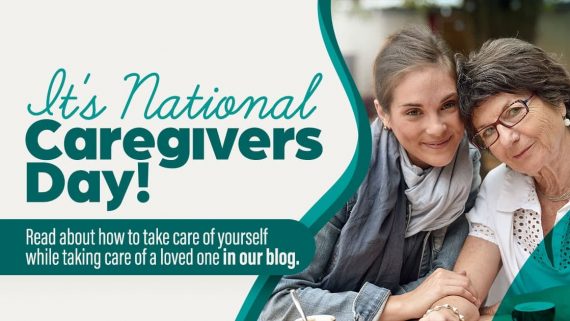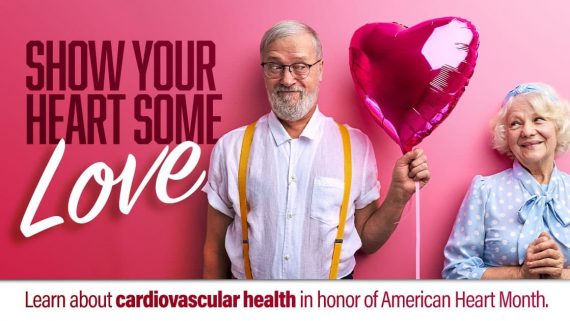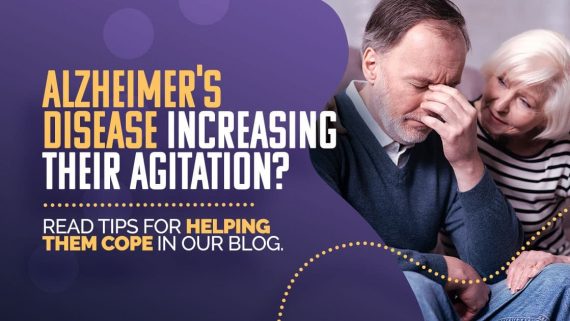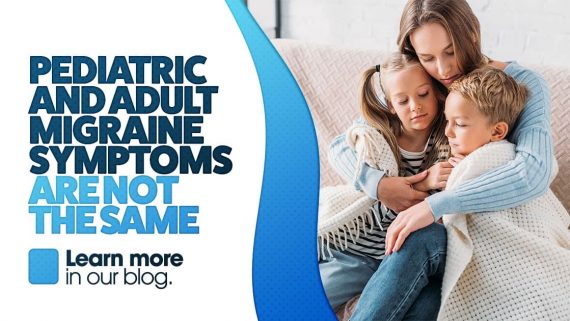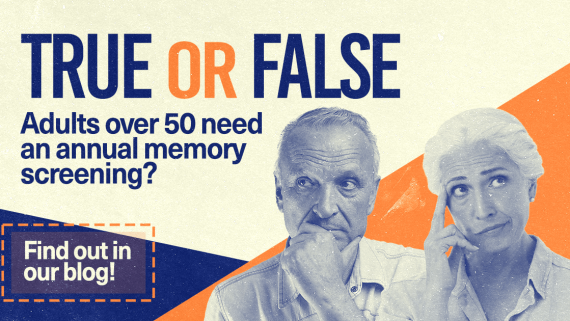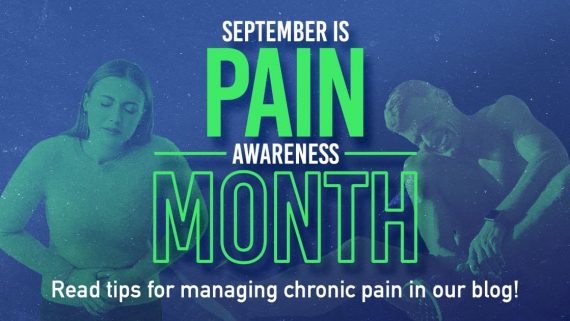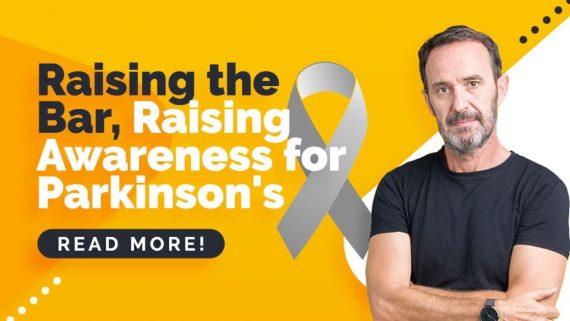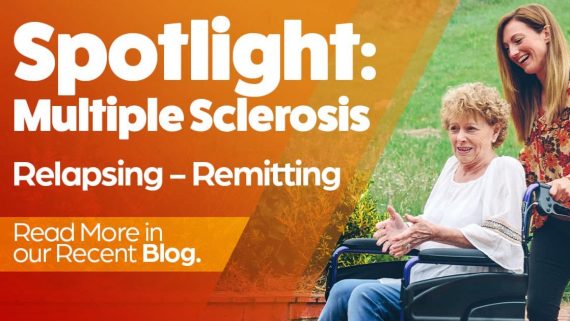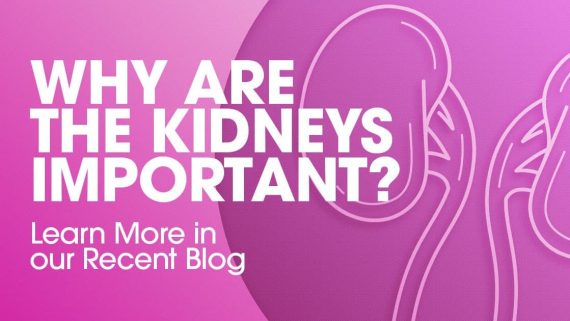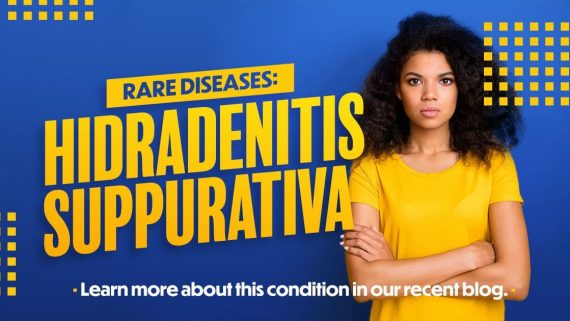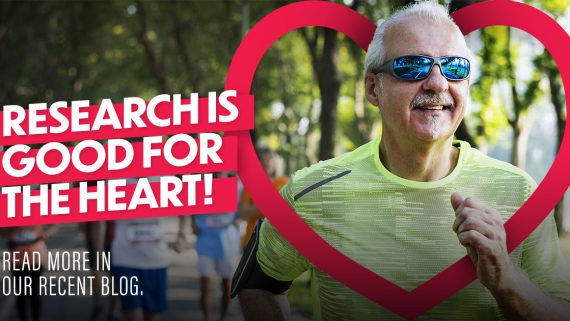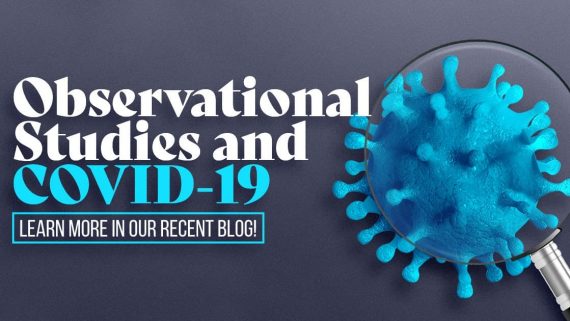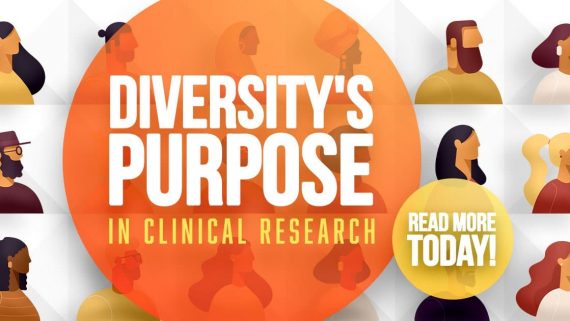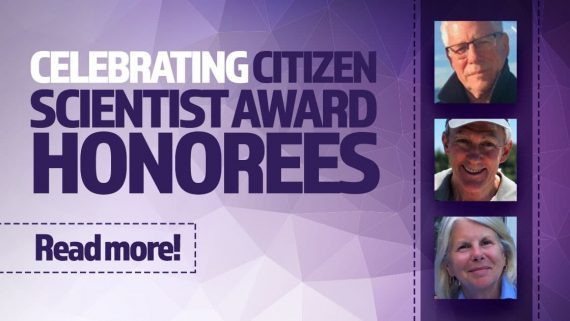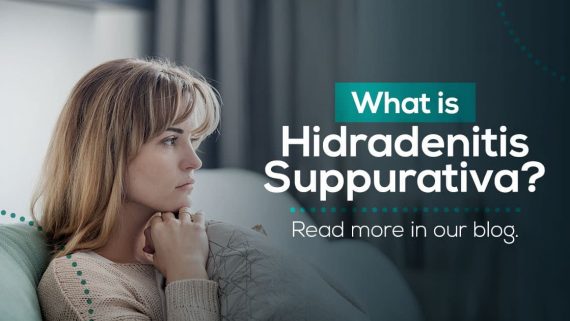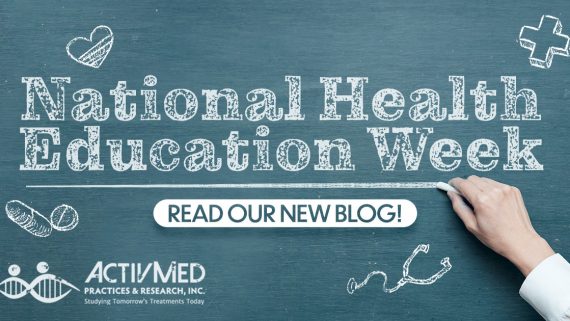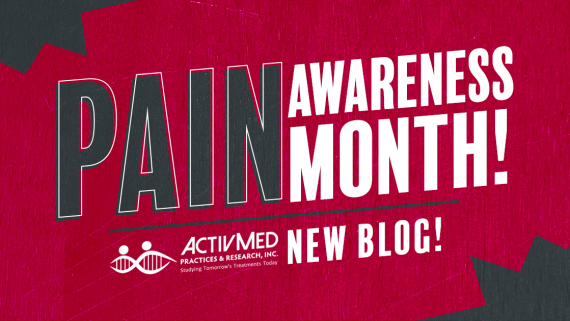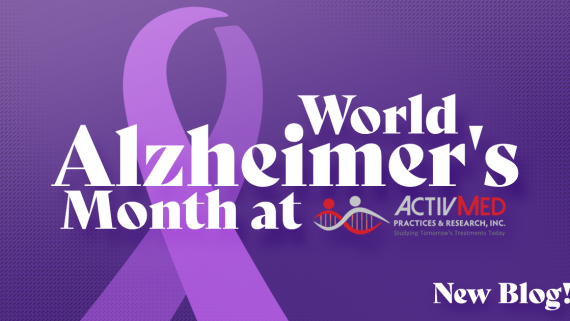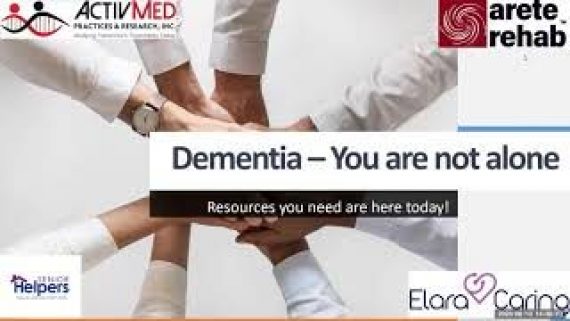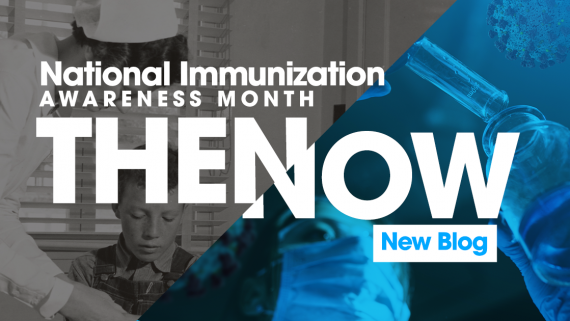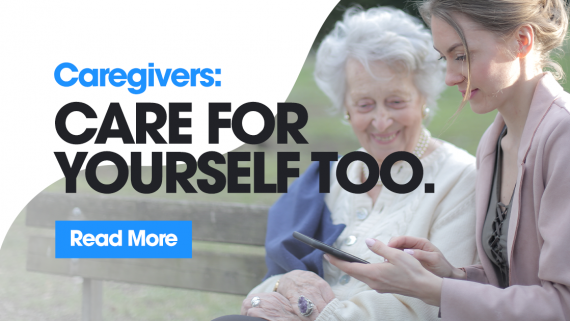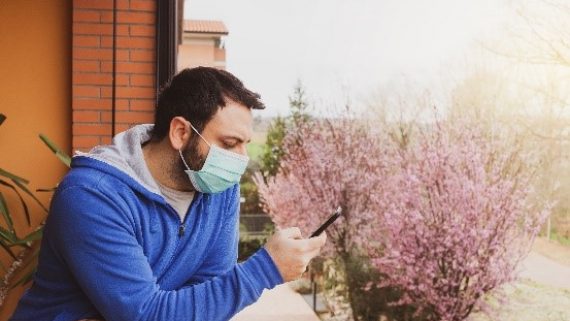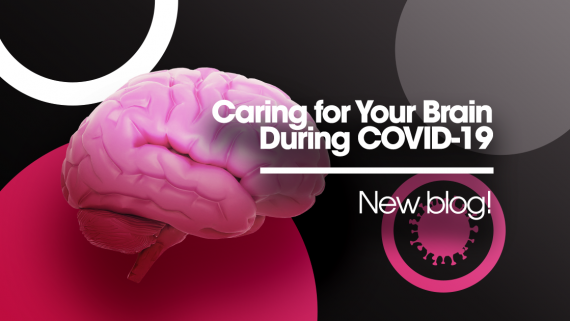The Green Memory study focuses on targeting microorganisms in your gut to determine if
rebalancing certain bacteria may improve brain function and slow the development of
Alzheimer’s disease.
Memory decline is more than just forgetting. Local physicians are seeking volunteers with history of memory decline between 50 & 85 years old to evaluate a trial medication to see if it helps symptoms. Find out more today.
For more information call 978-655-7155 or click here.
We all experience stress, and it’s more prevalent these days amid the COVID-19 pandemic. However, long-term exposure takes a toll on our physical and mental health. Knowing how stress can affect your heart and body can be the biggest inspiration in finding healthy ways to reduce it. This is the message at the heart of the Stress Awareness Month initiative that kicks off every April.
Fight-Or-Flight: The Stress Response
The stress response is a series of changes that occur in the body to take care of a real or perceived threat. Stressors are different for everyone and are any situations a person perceives as mentally or physically terrifying. When a stressor triggers our stress response, our body goes into fight-or-flight mode. Your heart beats faster, breathing increases, and muscles tense up. Once the threat is gone, the body functions return to normal.
The stress response is a short burst of heightened awareness that dissipates with the threat. In today’s world, there are fewer physical and more psychological stressors such as:
- Parenting
- Financial issues
- Family or relationship difficulties
- Pressure at work
The Constant State of Heightened Awareness

Some stressors can take a while to resolve, meaning the threat is always present. It also means the stress response stays on, and the body is in a constant heightened awareness state. Long-term exposure to chronic stress takes a toll on the mind and body. Irritability, anxiety, depression, and insomnia are some of the mental health symptoms of chronic stress. No system in the body is safe from the effects of stress. At the same time, it also increases our risk of certain conditions. For example:
· Muscles– Contracting the muscles for prolonged periods can lead to tension headaches and migraines.
· Heart– Stress increases the heart rate and strength at which the heart muscle pumps. Doing this increases the size of the blood vessels and arteries. This raises the blood pressure and can eventually damage the blood vessels and lead to heart disease.
· Liver– The energy boost during the stress response comes from the liver, increasing the blood sugar it produces. Over time, higher blood sugar levels significantly raise your risk for type 2 diabetes.

You Can’t Avoid Stress, But You Can Manage It.
You can’t always avoid every stressful situation. Therefore, we have to learn effective ways to manage stress and reduce its effects on the body. Though every person’s needs will vary, a healthy diet, regular exercise, and relaxation techniques are some coping strategies helpful in managing stress.
Living with a chronic health condition can be stressful. Participating in clinical research studies can help you prioritize your health while you help advance care options for your condition. Volunteering also has many mental health benefits and has been shown to reduce anxiety and depression.

Visit our website to view a list of enrolling studies in your area today!
Sources:
https://www.heart.org/en/news/2020/02/04/chronic-stress-can-cause-heart-trouble
https://www.verywellmind.com/stress-and-health-3145086
Cytomegalovirus (sy-toe-MEG-a-low-vy-rus) (CMV) is a common virus that’s undoubtedly a tongue-twister. Even with a name that’s 15 letters long, many people know little about it. The majority of individuals who contract CMV are not aware they have it. Unfortunately, lack of awareness isn’t a positive thing in this case. Cytomegalovirus has a more nefarious side that preys on the most vulnerable populations. Through education and research, we are ending the commonality of CMV.
What is CMV, and How Common is it?
The virus that causes human CMV infections belongs to the herpes virus family. Once an individual contracts CMV, it stays with them their entire life. Like other herpes viruses, it can remain dormant and then reactivate. Re-infection from another strain is also possible.

The Centers for Disease Control and Prevention (CDC) estimates that between 50 and 80 percent of people in the United States have had a CMV infection by the time they are 40 years old.
Symptoms and Vulnerable Population for Severe Disease
In most cases, individuals with a CMV infection don’t experience symptoms, thus making them unaware they have it. Mild symptoms generally consist of fatigue, fever, sore throat, and muscle aches. Below are the three main populations at risk for severe CMV symptoms and complications:
- Congenital CMV: When an infant gets a CMV infection before birth.
- Severe symptoms include jaundice, fever, and enlargement of the spleen and liver.
- Perinatal CMV: When a baby is infected with CMV during or shortly after birth.
- Infants that contract CMV after birth can face deafness, blindness, and other long-term neurological complications such as intellectual disabilities.
- CMV infection individuals with weakened immune systems:
- Severe symptoms include advanced pneumonia and inflammation of the retina that can lead to blindness. Stomach and esophagus ulcers and infections in the brain can also occur.
Transmission and Prevention of CMV
Once CMV infection occurs, the virus can also pass into body fluids, such as saliva, urine, blood, tears, semen, and breast milk. Therefore, individuals with CMV can spread it to others in the following ways:
- From direct contact with saliva or urine, especially from babies and young children
- Through sexual contact
- Nursing infants from breastmilk
- Through transplanted organs and blood transfusions
In addition, pregnant women who have CMV can also pass the virus to their baby while still in the uterus or during birth. About 1 out of 200 babies is born with congenital CMV. Out of the babies infected, 1 in 5 will have symptoms or a long-term health problem that may be present at birth or develop after. As a result, CMV is the most common infectious cause of congenital disabilities in the U.S. Despite this, CMV is preventable. You can find general prevention tips and screening information for women of childbearing age and those currently pregnant on the National CMV Foundation website.

Antiviral medications are the traditional form of treatment because they can slow the spread of the virus. Even though none of the available therapies can eliminate the CMV virus, researchers are studying potential new options to treat and prevent it. ActivMed Practices & Research is looking for healthy women to join our CMV vaccine studies at our Methuen, MA location.

Apply today via our website or contact us at (978) 655-7155.
Sources:
https://www.nationalcmv.org/overview/start-here
Palmoplantar pustulosis (PPP) and prurigo nodularis (PN) are a pair of tongue-twisting skin conditions we’re conducting clinical trials for. Though neither is very common, you can easily confuse the two because of their similarities. Here’s how to tell the difference between palmoplantar pustulosis and prurigo nodularis.
Symptoms of PPP and PN
PPP is a rare form of psoriasis where tiny blisters develop on the palms of hands and soles of feet. As the blisters dry up, they can turn brown and scaly, and deep cracks can form. PPP can be itchy and painful and cause a burning sensation in the hands and feet. As a result, patients may have difficulty walking comfortably or using their hands without pain.

PN affects the skin by causing hard, itchy bumps to form on the arms, legs, upper back, and abdomen. The itching is usually very intense, and patients often scratch themselves to the point of bleeding or pain. Loss of sleep, scarring, and changes to the skin’s surface are some of the most common impacts of PN.

Potential Causes
So far, we know that both conditions involve bumps that can be itchy and painful. On the other hand, they differ in:
- Location on the body
- Type of bump (blister vs. hard bump)
- Itch severity
- Ways they impact patients’ lives
Researchers are still working to identify the exact cause of both conditions better, though there are some potential factors for PPP include:
- An effect of nicotine on the sweat glands of the hands and feet since most patients are current or former smokers
- Family history
- Medication side effects
- Infections
For PN, researchers believe the “itch-scratch-itch cycle” is a significant player in developing this condition. PN begins with itchy skin that causes the uncontrollable urge to scratch and rub it. After about six weeks, the hard bumps form in the areas you’ve been scratching and rubbing. Many people who develop PN already have another condition that makes their skin extremely itchy, like eczema. Individuals with this condition also have thicker nerve cells in the skin, which may mean the signals letting the brain know the skin is itchy are more substantial than someone without PN.
Treatment
Treating both conditions involves a combination of therapies that you apply to the skin, take by mouth, or inject. These aim to:
- Remove or lessen the appearance of bumps
- Reduce the itchiness
- Suppress the overactive response from the immune system
- Control inflammation
In addition, habit reversal therapy is another part of treating PN that helps reduce the frequency of scratching. This technique uses awareness training and behavior modification therapy to create alternatives to scratching the skin.
ActivMed Practices & Research is looking for individuals with PPP and PN to join enrolling research studies evaluating potential new care options. To see if you may qualify, visit the Portsmouth, NH webpage for our PPP studies or visit the Beverly, MA webpage for our PN studies today!
Sources:
https://www.aad.org/public/diseases/a-z/prurigo-nodularis-treatment
https://rarediseases.info.nih.gov/diseases/7480/prurigo-nodularis
When living with atopic dermatitis (eczema), setting up a good skincare and moisturization routine is important for managing symptoms and preventing flares. Keeping the skin clean is one of the many reasons bathing and eczema go together like peanut butter and jelly.
Eczema and Dry Skin
The uppermost layer of our skin is what keeps irritants, bacteria, viruses, and allergens from getting into our bodies and moisture from getting out. Eczema is a skin condition that affects this layer and causes dry skin and a variety of symptoms, including:
- Itchiness
- Swelling
- Redness
- Scaling

Eczema also causes your skin to be more sensitive to irritants, leading to a flare-up. A flare-up is a phase of eczema where you experience worsening severity of one or more of the symptoms. Common triggers may include:
- Extended exposure to dry air
- Extreme heat or cold
- Some types of soap, shampoo, bubble bath, body wash, facial cleansers
- Laundry detergents and fabric softeners with chemical additives
- Certain fabrics like wool or polyester in clothing and sheets
- Metals, especially nickel, in jewelry or utensils
Soak and Seal

Individuals with eczema tend to have drier skin and are sensitive to encounters. Proper bathing and moisturization are good ways to keep the skin clean and prevent drying out. The “Soak and Seal” method is what many providers recommend to combat dry skin and reduce flares. To get the full therapeutic benefit, follow these steps:
- Take a bath using lukewarm (not hot) water for 5 to 10 minutes. Use a gentle cleanser (no harsh soaps) and avoid scrubbing the affected skin.
- After bathing, pat the skin lightly with a towel leaving it slightly damp.
- Apply a topical prescription medication to the affected areas of the skin per your doctor’s instructions.
- Within three minutes, liberally apply a cream or ointment type of moisturizer all over the body.
- Wait a few minutes to let the moisturizer absorb into the skin before dressing or applying wet wraps.
Eczema Symptoms Can be Persistent.

Do you have eczema and are experiencing persistent symptoms? Clinical research studies may help! As a research volunteer, you can help advance future care options for yourself and other individuals living with eczema. To learn more about currently enrolling eczema studies here at ActivMed, contact our Portsmouth, NH location at (603) 319-8863 or visit our website.
Sources:
https://www.aad.org/public/diseases/eczema/childhood/itch-relief/baths-moisturizer
Did you know that nearly 66 million Americans serve as caregivers to their parents and other loved ones? February 18th is National Caregivers Day, and in honor of our caregivers, we are shining a light on their work and exploring the different ways we can show them our appreciation.
What Does a Caregiver Do?

A caregiver is a paid or unpaid member of a person’s social network or a healthcare provider who helps them with activities of daily living. There are different types of caregivers. The types are family caregiver, professional caregiver, independent caregiver, private duty caregiver, and informal caregiver. Here is a list of duties that a caregiver might engage in during a typical month::
- Six days a month they spend grooming, feeding, dressing, bathing, and walking.
- 13 days a month they spend commuting, cleaning, doing the laundry, monitoring medication, shopping, and cooking special meals for a loved one.
- 13 hours a month are spent coordinating visits with physicians, researching symptoms and diseases, and managing finances.
Honoring Caregivers
While National Caregivers Day is the perfect time to acknowledge the dedicated individuals who work as caregivers, it shouldn’t end there. Showing your appreciation throughout the year with just a simple “thank you” can help lift the spirit of these individuals who work tirelessly to provide high-quality care to the loved ones in your life. You could even thank them over a simple note, letter, or email. Show your support on social media and use the hashtags, #thankacaregiver and #nationalcaregiversday, to share your story. A small gift to your family caregiver(s) would be an excellent idea, too. Here are some suggestions:
- Books (affirmations, mindfulness)
- Gift cards to their favorite store
- Baked goods
- Hand creams, aromatherapy diffusers, or other bath and spa related products
- Donation to a worthy cause in the name of the caregiver

If your loved one has been diagnosed with Alzheimer’s disease, clinical research studies may be an option. Research studies help advance prevention and treatment opportunities for Alzheimer’s and other chronic conditions. To learn more about our enrolling Alzheimer’s studies at our Lawrence, MA location, click here or call us at (978) 655-7155.
Sources:
https://www.nahc.org/national-caregivers-day/
Heart disease is the leading cause of death for men, women, and people of most racial and ethnic groups in the United States. In a person’s lifetime, their heart will beat on average over 3.5 billion times. February signifies the start of American Heart Month, which means there’s no better time to show your heart some love by making healthier choices to protect it.
Why You Need a Healthy Heart
The heart and circulatory system make up the cardiovascular system. When the heart expands and contracts, it moves the blood into each chamber, adds oxygen, and sends it back out into the body. Each cell and organ (including the heart) in our body depends on a steady flow of oxygen-rich blood and nutrients to function correctly.
Cardiovascular disease is an umbrella term for various conditions that affect the structure and function of the heart. These include:
- Blood vessel diseases
- Damage to the heart from infection
- Congenital heart diseases
American Heart Month

Most diseases that affect the heart are preventable. Each February, American Heart Month is celebrated by motivating Americans to adopt healthy lifestyles to prevent heart disease. Here are some ways you can protect your heart:
- Talk to your doctor about your blood pressure, cholesterol, and A1C
- Reduce your sodium intake, and increase the quantity of fruits, vegetables, and whole grains in your diet
- Be physically active
- Maintain a healthy weight
- Don’t smoke
- Incorporate techniques to help manage stress
- Learn how to cope with chronic conditions, like diabetes effectively
Visit The National Institutes of Health’s (NIH) American Heart Month webpage to explore additional heart-healthy self-care resources and ways to help inspire others to protect their heart.
Cardiovascular Studies
Safe and effective treatment options for individuals living with heart disease are vital to successfully managing these conditions. When potential new options are developed to diagnose, treat, or prevent a disease, research studies help make sure they are safe and effective. Patient volunteers who participate in these studies make advances in medicine possible.

Help spread the love and brighten the future of heart disease as a clinical research volunteer. At ActivMed Practices & Research, we have several cardiovascular studies enrolling at our Methuen, MA location. Call us at (978) 655-7155 to learn more or visit our website today!
Sources:
https://www.cdc.gov/heartdisease/about.htm
https://www.nhlbi.nih.gov/education/american-heart-month/about
The CDC says, “Vaccines are one of the greatest success stories in public health.” Before vaccines, diseases like, measles diphtheria, and whooping cough posed serious threats to the well-being of individuals everywhere. However, thanks to routine immunizations, their devastating effects are preventable. Though the history of vaccines isn’t always cut and dry, their humble beginnings laid the groundwork for saving millions of lives each year.
Early Evidence
When most people think of the birth of the concept of vaccines, they think of Edward Jenner. In the late 1700s, Jenner most notably tested a method that involved taking material from a blister of someone infected with cowpox and inoculating it into another person’s skin. This is referred to as arm-to-arm inoculation.
Surprisingly, evidence exists that the Chinese employed a similar smallpox vaccination method as early as 1000 CE. During this time, Asian physicians gave children dried crusts from the lesions of people suffering from smallpox to protect against the disease. Some children developed immunity, while others developed the disease. The practice was also used in Africa and Turkey before spreading to Europe and the Americas.
200 Years

Over the next 200 years, Jenner’s method underwent medical and technological changes that resulted in the eradication of smallpox. In 1881 Louis Pasteur, a French biologist, evaluated immunization against anthrax by injecting sheep with attenuated forms of the bacillus that causes the disease. Attenuation takes an infectious agent and alters it to become less dangerous. Four short years later, he developed a protective suspension against rabies. By 1980, polio cases declined by 99 percent. Many other vaccines help teach your immune system, how to combat germs and their diseases such as mumps, measles, typhoid fever, cholera, plague, tuberculosis, pneumococcal infection, tetanus, influenza, yellow fever, hepatitis A, hepatitis B, some types of encephalitis, typhus, and more.

Before creating a new vaccine, scientists take several factors into account. For example, they’ll consider who is most vulnerable, what the immune response will be to a germ, and which method is best to use to develop the vaccine. It’s important to note that viral infections do not respond to antibiotics, so vaccines for viruses provide important immune protection.
Join an RSV Study Today!

As more and more prevalent diseases become preventable through vaccines, their impact continues to lessen. ActivMed Practices & Research is seeking healthy volunteers over the age of 60 to join a respiratory syncytial virus (RSV) vaccine study. RSV is a type of respiratory infection that can cause serious illness in older adults. Since there is no vaccine currently available to help protect individuals from the disease, there is a great need for its development. To learn more, click the location nearest you below:
Sources:
https://www.britannica.com/science/vaccine
https://www.historyofvaccines.org/timeline/allhttps://www.chop.edu/centers-programs/vaccine-education-center/vaccine-history/developments-by-year
Alzheimer’s disease is a progressive neurodegenerative disorder. It initially causes forgetfulness that advances to severe memory and thinking impairment. Individuals with Alzheimer’s typically experience behavioral and psychological symptoms, such as agitation, increasing the burden on the caregiver. If your loved one is experiencing Alzheimer’s disease with signs of agitation and is struggling to cope, here’s what you need to know.
Agitation with Alzheimer’s Disease Is Common
Agitation is a common behavioral symptom that most patients with Alzheimer’s will experience. They may feel restless, causing a need to move around and pace, become upset in certain places, or when focused on specific details. The signs of agitation include:
- Rapid, exaggerated changes in mood
- Restlessness
- Irritability
- Aggression
Agitation is distressing and debilitating, causing significant negative consequences for patients and caregivers. Hence, it is one of the most common reasons patients with Alzheimer’s transition to nursing homes and other long-term care settings.
How to Cope and Make History in the Treatment of Agitation with Alzheimer’s Disease
If your loved one has Alzheimer’s and is showing the signs and symptoms of agitation, contact their doctor immediately. Their provider can identify other potential causes, such as underlying health conditions, circumstances, and medication interactions, and determine the best possible treatment path.
Steps you can take to reduce or prevent agitation include:
- Remove stressors – Create a calm environment, reducing noise, clutter, and the number of people present at a given time.
- Keep a routine – Set a schedule for bathing, dressing, and eating meals at the same times each day.
- Be calm- Speak calmly, listen to their concerns, and provide reassurance. Ensure their personal comfort needs are met for fatigue, hunger, skin irritations, digestive issues, etc.
- Help them feel secure – Keep familiar objects and photographs of friends and family around the house.
Furthermore, caregivers may need help with coping. To help ease the impact of caring for a loved one with agitation and Alzheimer’s disease, you can:
- Make your health a priority. Keep your regular appointments, get enough sleep, and eat healthy foods.
- Take time each day to do something you enjoy.
- Talk with other family members about stepping in, so you can get a break. It may even be helpful to look into respite options in your area.

Currently, there are no therapies approved by the FDA to treat the signs and symptoms of agitation in patients with Alzheimer’s disease. However, every FDA approval of new medicine starts with a clinical research study, as they provide the key tools used to find better ways to treat, detect, and prevent medical conditions.
ActivMed Practices & Research is currently looking for individuals to join a research study looking into new options for the treatment of Alzheimer’s. If your loved one experiences agitation with Alzheimer’s disease, please contact our location in Lawrence, MA to learn more at (978) 655-7155 or visit our website today!
Sources:
https://www.alz.org/help-support/caregiving/stages-behaviors/anxiety-agitation
https://www.nia.nih.gov/health/coping-agitation-and-aggression-alzheimers-disease
The National Headache Foundation estimates that around 5% of children will experience a migraine by the age of 10. However, pediatric migraines often go undiagnosed because children cannot fully communicate their symptoms. Pediatric and adult migraine symptoms do differ, and we’re going to show you how.
Adults Vs. Kids Migraine Symptoms
Light and sound sensitivity are common in adults with migraines. Children can also experience the same but may have trouble describing it. Instead, they may put on sunglasses or earplugs or go to a dark, quiet room. Children with migraines often experience vertigo, abdominal pain, and sensitivity to odors more than adults. They also have more involuntary symptoms such as:
- Forehead and facial sweating or flushing
- Eye redness or tearing
- Runny nose or congestion
- Swelling around the eye
- Drooping eyelid
Phase Symptoms Difference
In general, migraines last a significantly less amount of time in children. Moreover, the location of the headache pain is also different in children. They feel pain on both sides of their heads or across their foreheads. Adults typically experience headache pain on one side of the head. During the different phases of a migraine, the differences between adults and kids include:
- Pre-headache: Both children and adults commonly experience mood changes like irritability. However, a child may also appear paler or develop undereye shadows. In contrast, adults report more stomach issues such as diarrhea or constipation and muscle stiffness, fatigue, and yawning.
- Aura: A child may have difficulty recognizing or reporting visual disturbances such as zig-zag lines, bright spots, or flashing lights.
- Headache: Though a child may not verbalize it, the throbbing pain of a pediatric migraine is moderate to severe. Your child may stop eating or playing, cry a lot, or have temper tantrums.
- Post-headache: The symptoms individuals experience following a migraine is called the postdrome, or post-headache phase. Adults report fatigue, weakness, mood changes, stiff neck, difficulties concentrating, or dizziness. Kids most commonly feel the following:
- Thirst
- Sleepiness
- Vision changes
- Food cravings
- Numbness and tingling sensations
- Eye pain
Recognizing how a pediatric migraine differs from an adult migraine is critical in proper diagnosis and learning how to manage this lifelong condition. ActivMed Practices & Research have several adult and pediatric studies enrolling at our Lawrence, MA location.

To learn more, call us at (978) 655-7155, or visit our website today!
Sources:
https://www.verywellhealth.com/pediatric-migraines-4178789https://americanmigrainefoundation.org/resource-library/pediatric-migraine/
Every year thousands of individuals become seriously ill and require hospitalization because of diseases that vaccines can help prevent. Many face long-term health complications or succumb to the symptoms of these diseases. Germs are all around us, and protecting our bodies from developing a serious illness goes beyond self-preservation. Vaccines are important. Here’s why.
The Soldiers, the Officers, and the Generals of Immune Response
When a pathogen (virus, bacterium, parasite, or fungus) enters the body, the immune system sends antibodies to fight it off. Whether you get sick or not depends on how effective they are and your immune system’s strength. If sickness occurs, the immune system targets a specific part of the pathogen that shows how to eradicate it. These instructions help to create a type of super antibody specifically trained to kill a pathogen. Lastly, another antibody group is created to remain in the body with the playbook of instructions for any potential future encounters with that particular disease.
Imitation is the Best Form of Flattery
Immunity after infection is tricky because you have to get sick first. When the disease has a high mortality rate or the person has pre-existing conditions that increase the risk for severe infection, gaining immunity naturally is a gamble. Vaccines mimic the body’s natural process by using weakened or inactive parts of the pathogen. Other vaccines only contain the kill instructions and don’t use parts of the virus. Each type is designed to trigger our immune response without having to get sick.

Vaccines Save Lives and so Much More
The ongoing COVID-19 pandemic is a painful reminder of how widespread sickness and loss of life strain the economy, healthcare, national funding, and more. Thanks to clinical research, available vaccines distributed over the last year and a half have made normalcy a reality again.
Bottom line, vaccines are essential because they save lives and:
- Protect us from spreading an illness to our loved ones and others.
- Reduce the likelihood of an outbreak from preventable diseases.
- Help protect individuals who are medically unable or too young to receive immunizations.
- They are very effective in preventing severe disease.
- The safest way to protect your health, so you don’t have to miss work or time with your loved ones.
RSV season is upon us. Respiratory syncytial virus is a common illness that causes cold-like symptoms that can be serious in infants and older adults. ActivMed Practices & Research is looking for individuals to join RSV vaccine studies at our Beverly, MA, Methuen, MA, and Portsmouth, NH locations.

To learn more about how you can get involved in our RSV or other vaccine studies, click here for contact information to your local office and their active studies.
Sources:
https://ftp.historyofvaccines.org/content/articles/top-20-questions-about-vaccination
https://www.cdc.gov/vaccines/adults/reasons-to-vaccinate.html
https://vaccineinformation.org/vaccines-save-lives/
November marks the celebration of the body’s largest organ, the skin. Nevertheless, it’s no secret that having healthy skin starts with taking care of it all year round. In fact, the American Academy of Dermatology sponsors National Healthy Skin Month each year, and their website features a wealth of resources on what it takes to keep the skin healthy, as well as advice from dermatology experts on how to treat and prevent common skin problems.
Your Skin Is Important Because…
It serves many essential functions like:
- Protection against trauma
- Regulation of body temperature
- Maintaining the balance of water and electrolytes
- Recognizing painful and pleasant stimuli
- Helps in synthesizing vitamin D
The skin keeps vital nutrients in the body while providing a barrier against dangerous substances from entering the body. For example, it provides a shield from the harmful effects of ultraviolet radiation from the sun. Moreover, the color of your skin, its texture, and folds help differentiate people as individuals. The skin consists of three layers, and each is responsible for performing specific tasks.
- Epidermis– The outermost layer of the skin that creates a waterproof barrier and skin tone.
- Dermis– The next layer of the skin that gives the skin its flexibility and strength. The dermis contains nerve endings, sweat glands, oil glands, hair follicles, and blood vessels.
- Fat layer– Below the dermis is a layer of fat that helps insulate the body from heat and cold. It also provides protective padding and is used as an energy storage area.
#YourHealthiestSkin

You can celebrate National Healthy Skin Month by:
- Visiting the AAD website to learn ways to take care of your skin better by exploring one of their many online resource articles.
- Sharing your healthy skin story on social media using the hashtag #YourHealthiestSkin
- Doing a self-skin check for changes and potential spots for skin cancer. See a dermatologist immediately for any concerns.
Furthermore, managing chronic skin conditions can be challenging, especially when symptoms persist despite trying several options. Participating in clinical research studies is a great way to potentially gain access to the newest cutting-edge options before being made available to the public. Clinical research volunteers can also have the opportunity to learn more about their condition from study medical staff, which may even lead to the better management of conditions.

ActivMed Practices & Research has several dermatology studies currently enrolling that are looking into possible new options. Explore your options today by clicking here for our Beverly, MA location and here for our Portsmouth, NH office.
Sources:
https://www.aad.org/public/public-health/awareness-campaigns/national-healthy-skin-month
https://nationaltoday.com/national-healthy-skin-month/
Family members are the primary source of support for older adults and people with disabilities in the U.S. Nearly half of all caregivers are over age 50. The significant emotional, physical, and financial toll caregiving can take means that many are vulnerable to their own health declining. In fact, managing mental health as a family caregiver is one of the support services highlighted during National Family Caregivers Month. As we recognize and honor the contributions of caregivers, let’s make sure we take care of them, too.
Engage, Support, and Empower
This year, National Family Caregivers Month builds upon the continued resilience of the care partner community. Over the past year, caregivers have taken on added responsibility to keep themselves and their loved ones safe from COVID-19. With this ever-mounting burden, many may have forgotten to address their own mental and physical well-being.

Alzheimer’s disease is called a family disease because watching a loved one slowly decline creates chronic stress that affects everyone. Nevertheless, it’s important for caregivers to focus on their own needs, take time for their own health, and get support and respite from caregiving regularly to sustain their well-being during this journey. Emotional and practical support, counseling, resource information, and educational programs about Alzheimer’s disease help a caregiver provide the best possible care for a loved one.
You can celebrate National Family Caregivers Month by:
- Taking a free mental health assessment if you are struggling with your own mental health
- Making sure you are taking breaks to rest and enjoy the things you love
- Keeping up with your regular doctor appointments
- Sharing your caregiving story utilizing the hashtags #CaregiverAnd, #FamilyCaregiver, #Caregivers, and #NFCMonth
- Utilizing online and local resources for support
The Vital Role of Caregivers in Dementia Research
Caregivers provide many vital roles when it comes to their loved ones. They are often the first to notice changes in symptoms and behaviors, attend doctor’s visits, and are responsible for communicating with other family members. Clinical research studies offer an opportunity for caregivers to help their loved ones leave a lasting legacy that impacts future generations of individuals with Alzheimer’s or other dementia.

ActivMed Practices & Research offers FREE baseline memory screenings and Alzheimer’s disease research studies that are currently enrolling. To learn more about setting up a free screening for you or a loved one or about our enrolling studies, call (978) 655-7155 or visit our website today!
Sources:
https://acl.gov/news-and-events/downloads-and-multimedia/NFCM
https://www.caregiveraction.org/national-family-caregivers-month
https://www.census.gov/newsroom/stories/family-caregivers-month.html
This year, National Health Education Week takes place from October 18th through the 22nd. Its purpose is to celebrate the role public educators play in increasing awareness of major public health issues. To commemorate this occasion, ActivMed wants to remind readers about our FREE baseline memory screenings. When it comes to brain health, memory screenings are a great first step.
What is a Baseline Memory Screening?
A baseline memory screening is a series of questions and tasks designed to test memory, language skills, thinking ability, and other intellectual functions. It’s a simple, safe, and quick way to determine your brain health. The screening doesn’t diagnose anything, but it can determine whether or not you would benefit from a full evaluation. The results are given to you right away and can also be sent to your doctor if a follow-up is a recommendation.
The short answer is yes. While some individuals are at a higher risk, anyone can develop Alzheimer’s or other dementia. As we get older, the brain changes, and memory loss and other issues become more common. But how do you know when your memory issues are more than age-related? Memory issues that disrupt your daily life are among the top 10 warning signs that The Alzheimer’s Association lists as reasons to consult your doctor immediately. These include:
Is a Memory Screening Right for You?
- Repeating the same question over and over
- Confusion with time places
- Difficulty completing familiar tasks
- New problems with speaking or writing
Other underlying medical issues and other factors can also cause memory issues. Hence, why you should always get checked out if experiencing any of these symptoms. Treating the underlying cause often improves symptoms.
Added Benefits
The National Institute of Health is now recommending everyone 50 years of age or older gets a baseline memory screening followed by annual memory exams to watch for cognitive changes. You can alleviate any concerns if the screening is negative. If positive, you can take steps that may result in the opportunity to play an active role in:
- Creating or updating advance directives and planning long-term care.
- Ensuring support services and a care network are put in place to help with future medical, legal, and financial concerns.
- Working with caregivers to develop strategies to improve quality of life, make safety modifications for the home, and manage emotions related to the dementia diagnosis.

National Health Education Week is October 18th-22nd. To schedule your FREE baseline memory screening, call us at 978-655-7155 or fill out a request form online today!
Sources:
https://www.nchec.org/NHEW2021
https://www.nia.nih.gov/health/assessing-cognitive-impairment-older-patients
Medical heroes are all around us. Though their contributions aren’t always well-known, most of us have benefitted from their role as clinical research volunteers. Clinical trials provide a pathway to medical advances, and study volunteers help make that possible. You can be a clinical trials hero today too. Here’s how.
Clinical Trial Summary
Clinical research enables advances in medicine in two main ways. First, we can better understand a condition and what factors influence it in different populations (gender, age, ethnicity, etc.). The more we know about a disease, the better we can treat it.

Second, research studies help evaluate the safety and effectiveness of newly developed therapies as they interact with the human body through research volunteers. Each potential treatment must successfully complete all clinical trial phases and FDA approval before it’s available to the public.
Not Like the Comics
Medical heroes aren’t like the comics, but we assure you, their impact saves lives. There’s no exaggeration here. Every prescription medication, surgical device, therapeutic approach, and diagnostic tool available on the market today is because of research studies and the volunteers who participate in them.
There are millions of people who suffer from diseases where there is not yet a cure – including Alzheimer’s, certain cancers, and Lupus, to name a few. Medical Heroes play an integral role in combatting and curing diseases like these.
Who can be a Medical Hero?
Medical heroes may be ourselves or people we know, such as neighbors, co-workers, family members, and friends. All ages, ethnicities, genders, and individuals from different backgrounds are needed for optimal diversity—those living with specific conditions and those generally in good health. Unfortunately, some situations do prevent some people from participating in research. Their voices carry on, though, in every able person who joins a research study.

We’re Holding Out for Clinical Research Heroes
The team here at ActivMed Practices & Research would like to extend a heartfelt thank you to our past, present, and future research volunteers. Your partnerships have allowed us to continue our mission of advancing medicine through the clinical trials we conduct here. To see our list of enrolling study opportunities, visit us online to learn more, or click here for the contact information of the location nearest you.
Did you know that over 50 million Americans are living with chronic pain? September is Pain Awareness Month, and its initiative is to raise awareness about the issues that sufferers face every day. In the race to advance chronic pain management, clinical research studies are here to provide a path for bringing improved therapies closer to the patients who need them.
Managing Chronic Pain
Chronic pain can originate from many sources. These include injuries, illnesses, and prolonged physical, emotional, or social stress. Though the brain decides when you are in pain, this does not mean that the pain is in your head. For instance, a broken body part isn’t always the cause of pain. The more signals received to the brain, the more the brain labels the signals as pain. When this occurs, it often prolongs the difficulties that come with experiencing pain.
These tips, when used consistently and together, can help you manage chronic pain:
- Try whole-body stretches, gentle yoga, or tai chi for about 10 to 15 minutes daily.
- Stay active.
- Reduce stress and practice relaxation techniques.
- Pace yourself.
- Address other conditions that worsen the pain.
- Managing pain often means creating opportunities to be positive. Taking part in enjoyable activities has been shown to decrease the effects of pain signals in the body.
- Stay connected with others.
- Get the sleep you need.
Pain Awareness Month
September marks a time to raise public awareness around pain, pain management, and the great work pain professionals do during the month and beyond.
This year, the focus is on the vital importance of an individualized, multidisciplinary, and multimodal approach to pain care. Use the tools on the International Association for the Study of Pain’s webpage to share important information on social media, access the latest research and science around pain, and help shed light on the pain field.

Potential new options are being evaluated in clinical research studies for chronic pain. You can get involved in helping to improve healthcare for individuals with chronic pain by volunteering in clinical research studies.
To learn more about the studies enrolling at our Methuen, MA location, click here, or call (978) 655-7155. Other studies involving potential new therapies for conditions that cause chronic pain are enrolling, too. Click the links to explore these studies at our Portsmouth, NH, Beverly, MA, and Lawrence, MA locations.
Sources:
Having atopic dermatitis (AD) causes your skin to become very sensitive. Most of the time, that heightened level of sensitivity influences the clothing you wear, as well as the laundry detergents, soaps, and cleaners you use. However, the good news is that you can still be fashionable without triggering an AD flare-up.
What is Atopic Dermatitis?
Atopic dermatitis, commonly known as eczema, is a chronic condition that leaves your skin looking red and feeling itchy. Since it is chronic, symptoms may worsen at different times and cause flare-ups. There are many factors that trigger flare-ups including clothing, lotions, and soaps.
Natural Fibers Are Your Best Friend
Choosing clothing made from natural fibers, such as cotton, bamboo, or silk, can help ease the sensitivity of AD. For example, it is good to wear clothing that is composed of 100% cotton. Cotton is being breathable and cool. Bamboo and silk are also considered to be quite soft, breathable, and effective. These fabrics are good at regulating the temperature of the body. Silk can be worn under clothing as a barrier to protect the skin from tighter fitting clothing.
Hypoallergenic Jewelry is a Must
Many people who suffer from atopic dermatitis have an allergy to nickel, so avoiding jewelry made of nickel is crucial. Choose jewelry that is hypoallergenic, such as ones that contain:
- Stainless steel
- At least 18-karat gold
- Sterling silver
- Polycarbonate plastic
These materials are less likely to cause flare-ups from increased skin irritation.
Managing Atopic Dermatitis Flare-Ups
You can still be comfortable and fashionable while living with AD. A simple search on the internet can help you find clothing and accessories that are easy on the skin. To minimize the frequency of AD flare-ups, it is best to identify and reduce your exposure to the various factors that trigger them. In fact, this step is vital in effectively managing the condition.

Like any chronic condition, learning everything you can about AD is integral to your overall health. Clinical studies are a great way to learn more about your condition from healthcare experts with specialized training in AD. As a result, participating in studies provides patients with the tools necessary to improve their self-care and the management of their AD.
Interested in learning about our enrolling AD clinical research studies? Click here and explore our Portsmouth, NH studies.
Sources:
https://atopicdermatitis.net/living/wear-best-clothing-fabric
https://eczema.org/information-and-advice/triggers-for-eczema/clothing-and-eczema/
Respiratory syncytial virus (RSV) is so common that most children get it before the age of two years. Healthy people usually experience mild, cold-like symptoms and recover within a week or two. However, the RSV virus can have serious effects on older adults, as well. In the U.S. specifically, RSV has caused an estimated 177,000 hospitalizations and 14,000 deaths in people aged 65 and older every year.
Here’s what you need to know to have a better understanding of the virus.
What is RSV?
RSV is a virus that causes respiratory illness which covers the nose, throat, and lungs. It typically mimics a mild cold leading to symptoms, such as:
- Runny nose or congestion
- Dry cough
- Low-grade fever
- Sore throat
- Sneezing
- Headache
In severe cases, the infection can spread to the lower respiratory tract, causing inflammation of the small airway passages entering the lungs. Examples of severe infection symptoms include:
- Fever
- Severe, persistent cough
- Wheezing
- Difficulty breathing
- Bluish color of the skin due to lack of oxygen
Causes and Risk Factors
RSV symptoms usually begin within 4 to 6 days after exposure, and infected individuals are generally contagious for 3 to 8 days. The virus can be transmitted in several ways. For example, it can be spread through the respiratory droplets of an infected person, touching contaminated surfaces with the virus on them, or direct contact, like kissing the face of anyone with RSV.
While people of any age can get RSV, those at the highest risk for severe disease include:
- Premature infants
- Young children with heart or lung diseases
- Adults and young children with compromised immune systems
- Older adults, particularly those with pre-existing heart or lung disease
Prevention and Treatment
To prevent the spread of RSV, experts recommend engaging in health-protective behaviors. These behaviors include proper handwashing, avoiding close contact with others, covering coughs and sneezes, and not sharing personal items. Frequently cleaning toys and surfaces is essential, too.
Most RSV infections resolve on their own in a week or two, and for those who have contracted RSV, there are treatment options available. These options consist of self-care measures to make patients more comfortable, as well as over-the-counter therapies that help clear congestion, reduce fever, and keep people hydrated. However, if severe symptoms persist, you may need hospital care.

Fortunately, researchers are working to develop vaccines and treatments to help fight RSV, as potential new options are currently being evaluated in clinical research studies. If you’re an adult over the age of 60 and are interested in learning about how you can get involved with upcoming RSV studies here at ActivMed Practices & Research, please call us today at (978) 969-6897!
Sources:
With so many individuals living long, active lives, the senior citizens in our communities show us that taking care of your health never goes out of style. Senior Citizens Day is a chance to understand the contributions and dedication of seniors. It’s an annual celebration on August 21st to honor the seniors in our families and communities and bring awareness to the issues they commonly face.
Alzheimer’s and Parkinson’s
Alzheimer’s and Parkinson’s disease are two conditions prevalent in people over the age of 60. Below is a summary of each and frequency they affect senior populations.

- Summary:
- Alzheimer’s– Alzheimer’s disease is a progressive neurologic disorder that causes the brain to shrink and brain cells to die. It destroys memory and thinking skills and, eventually, the ability to carry out daily activities.
- Parkinson’s– Parkinson’s disease (PD) is the second most common degenerative neurological disorder after Alzheimer’s disease. It causes the brain cells that produce dopamine (coordinates movement) to stop working or die. This leads to difficulties with movement and other non-motor symptoms.
- Prevalence:
- Alzheimer’s– an estimated 6.2 million Americans aged 65 and older are living with Alzheimer’s in 2021. 72% are age 75 or older.
- Parkinson’s– It is estimated that PD affects 1 percent of the population over 60. Overall, as many as 1 million Americans are living with PD, and approximately 60,000 Americans receive a diagnosis of PD each year.
National Senior Citizens Day
Although some people think being a senior means retirement, the truth is that many adults remain active well into their advanced years. This holiday is the perfect time for people to let the senior citizens in their families and communities show their appreciation. Write a letter, send a card or volunteer at a retirement home. Spread awareness via social media using the hashtag #NationalSeniorCitizensDay.
Both PD and Alzheimer’s are progressive neurodegenerative diseases. Over time, they can rob seniors of their independence and quality of life. In turn, our lives are deprived of their well-earned wisdom and advice, and their support and guidance we navigate the many different aspects of life. Clinical research has led to many important discoveries that help improve how we detect, manage, and eventually cure these conditions.
Potential new options are currently being evaluated in research studies for PD and Alzheimer’s. Research studies partner with volunteers to make sure these new options are safe and effective. Becoming a research volunteer is a great way for seniors to give back to advancing medicine and future generations of seniors. ActivMed Practices & Research has several opportunities for seniors. We are currently seeking individuals to join enrolling PD and Alzheimer’s studies and for other future opportunities for other indications like shingles.

We also offer FREE memory screenings for adults at risk of Alzheimer’s or who are experiencing memory issues. Call us at (978) 992-4239 to schedule your memory screen and learn more about our enrolling Parkinson’s disease and Alzheimer’s studies at our Lawrence, MA location. Or, feel free to visit our website.
Sources:
https://www.michaeljfox.org/parkinsons-101
With back to school in full force, it’s fitting August is also National Immunization Awareness Month (NIAM). The annual event highlights the importance of vaccination for people of all ages. Immunization is the single most crucial health measure you can take to protect yourself and your loved ones.
Vaccine Importance
Vaccines are much like a manual for your body that shows how to recognize and defeat a harmful disease. Scientists and researchers take weakened or dead parts of a virus in the vaccination. This exposes your body to an illness so it can create antibodies for it—all without the risk of complications from a live version.

Over 20 widely used vaccines are available today for severe illnesses like measles, meningitis, pneumonia, smallpox, and polio. Many of these diseases once ran rampant, leaving trails of death, disability, or serious illness. For example, smallpox has killed an estimated 300 million people since 1900. Thanks to widespread immunization efforts that eradicated it in 1977.
Though eradicated, the germs that cause smallpox and other viruses we vaccinate against continue to circulate in parts of the world. Now more than ever, the ease at which illnesses can travel to other parts of the world means we are all at risk. The World Health Organization estimates vaccines save over 4 million children alone every year.
National Immunization Awareness Month
NIAM is the perfect time to get with your health provider. They can ensure you and your loved ones are current on your vaccines and answer any questions you may have. The CDC has an interactive guide and other immunization tools to see recommendations by age group. You can also spread the word to others by using the hashtag #NationalImmunizationAwarenessMonth in social media correspondence.
Participating in clinical research studies may also be an option for those interested in getting vaccinated. ActivMed Practices & Research has current opportunities to get involved in now, and more are starting soon. At the moment, we are enrolling participants for meningitis vaccine studies at our Beverly, MA and Methuen, MA locations.

Our COVID-19 vaccine booster studies that include either the flu or shingles immunization will begin enrolling shortly. We also have an RSV vaccine study starting soon too! To add your name to our list to call for additional information, click here to select your location for contact information or fill out the “future studies” form to submit your information electronically.
Sources:
https://www.who.int/news-room/q-a-detail/vaccines-and-immunization-what-is-vaccination
https://nationaldaycalendar.com/national-immunization-awareness-month-august/
https://www.history.com/news/the-rise-and-fall-of-smallpox
Summer typically means spending more time outside doing all the summer-y things most of us love. However, the increased exposure to sunlight and heated air can turn some skin conditions upside-down. Fortunately, you can take some simple steps to avoid flare-ups during the summer, which can quickly ruin your fun. Here are a few examples.
Hidradenitis Suppurativa and Summer
For Hidradenitis Suppurativa (HS), it is clear that prolonged exposure to heat exacerbates symptoms. You can still enjoy the summer by taking a few precautions along the way, such as:
- Wear lightweight clothing to keep you cool. Opt for fabrics with UV protection and that are made from lightweight materials like polyester that are moisture-wicking.
- Drink enough water to keep hydrated throughout the day. Also, supplement with coconut water, homemade juices, and smoothies to change things up.
- Avoid direct sun as much as possible. Use a portable mini fan to help in other cases.

Keep in mind it’s also important to be mindful of how your body always feels. Always be on the lookout for signs you may be getting overheated. Two of the most common heat-related illness are heat stroke and heat exhaustion. Some symptoms are dizziness, fatigue, headaches, nausea, confusion, fast pulse, and elevated body temperature.
Atopic Dermatitis (Eczema) and Summer
When UV therapy is a treatment for eczema-prone skin, you may wonder why summer isn’t always sweet for individuals who have it. Sweating is the number one enemy in the summer since it contains various things that can irritate broken skin, like that in eczema. Typically, it worsens in areas that trap moisture like the elbows, back of the neck, or the backs of the knees. Beat summer eczema flare-ups with these tips:
- Avoid sweating by staying cool. Stick to the shade when outside, and drink plenty of water to keep your body temperature at an average level.
- Choose a mineral sunscreen versus a chemical one. These should have the words “physical” or “mineral” on the bottle with ingredients in them like zinc oxide and titanium dioxide.
- Rinse off after swimming and change out of wet clothes as soon as possible. If you can’t rinse off, keep a spray bottle with clean water and spray off your skin. Always bring a dry change of clothes to change into if you get sweaty or after swimming.

Beat the Summer Heat. Join a Dermatology Study Today!
Many of the tips above are great when managing most skin conditions this summer, along with keeping your skin moisturized. If you’re still looking for a way to give back this summer and beat the heat, consider one of our enrolling dermatology studies here at ActivMed Practices & Research. We have studies for psoriasis, eczema, hidradenitis suppurativa, facial acne, and more! To learn more, click to visit our Beverly, MA, and Portsmouth, NH locations for details today!
Sources:
https://www.everydayhealth.com/eczema/strategies-avoiding-eczema-flare-ups-summer/
https://hsdisease.com/living/beat-heat
https://www.aad.org/public/everyday-care/skin-care-secrets/routine/prevent-summer-skin-problems
On July 7th, chocolate lovers around the globe will guiltlessly indulge in their favorite treat during World Chocolate Day. Though chocolate connoisseurs may argue the benefits of responsible consumption, its impact on migraines isn’t always clear. Is it a trigger or a warning of an impending attack? In truth, the relationship between chocolate and your migraine is as unique as you are.
To Eat, or Not to Eat
Migraines are often triggered by different environmental, physical, and emotional factors. Changes in routine, dehydration, and stress are the most common. Excessive consumption of caffeinated products can contribute to the onset of a migraine. All chocolate has some caffeine in it. So, if that is a trigger for your migraines, you may want to consider that.

On the other hand, many people reportedly crave sweet food such as chocolate before the pain of a migraine. This leads them to conclude that eating sweets are causing their migraines. However, sometimes those cravings are symptoms of the beginning of an attack. Identifying what’s triggering your migraines and recognizing common symptoms before an attack are both crucial in managing your condition better. Therefore, knowing how chocolate affects your migraines is one way to help!
World Chocolate Day
Since 2009, World Chocolate Day celebrates all kinds of goodies made from chocolate. It is also the anniversary of when chocolate was first brought over from Europe on July 7th, 1550. Since then, the dark treat has led to the creation of chocolate milk, hot chocolate, chocolate candy bars, chocolate cake, brownies, and many other favorites. You can join in the chocolate-themed celebration by enjoying your favorite dessert, reading a related book, or learn more about chocolates around the world. Whatever you do, share it on social media using the hashtag #WorldChocolateDay!

Although the effects of chocolate are unique to each person with migraines, a surer way to help migraine symptoms is through clinical research studies. By participating in migraine research studies, you play a personal role in advancing options for current and future generations. You also learn more about your condition and may gain access to potential new opportunities not yet available to the public.
Migraines are also common in children, which drives the need for designing age-appropriate therapies for safer, more effective outcomes. ActivMed Practices & Research is currently enrolling migraine studies for children aged 6-17 at our Lawrence, MA location. To learn more, call (978) 992-4239 or visit our website.
Sources:
https://nationaldaycalendar.com/world-chocolate-day/
https://www.migrainetrust.org/about-migraine/trigger-factors/common-triggers/
Obsessive-compulsive disorder or OCD is a chronic anxiety disorder that affects 1 in 40 Americans. Neatness and germaphobia are often what come to mind when people hear the term. In actuality, these are some of many rituals created to satisfy repeated, unwanted thoughts. OCD isn’t uniform and goes beyond a color-coded planner or organized pantry. It is so much more.
Obsession Categories and Associated Compulsions
OCD is a never-ending cycle of obsessions and compulsions. Obsessions are unwelcome thoughts or urges that repeatedly play out in patients’ minds, creating immense anxiety and stress. These typically warn of impending doom which triggers a patient’s compulsion to act out certain behaviors or rituals to dispel the thoughts or relieve stress. The relief is only short-term, and the thoughts return, and the cycle is repeated over and over-consuming an hour, sometimes several each day.
Those with OCD know their thoughts and actions are not rational and wish they could be free of them but feel helpless to stop them. For instance, suppressing OCD behaviors end up worsening symptoms, so it’s not something you can stop on your own. There are several categories of obsessions and various associated compulsive behaviors. These generally include:
Common Obsessions:
- Intrusive Thoughts
- Unwanted Thoughts
- Repetitive Thoughts
- Racing Thoughts
- Violent Thoughts
- Sexual Thoughts
- Religious Blasphemy Thoughts
Common compulsions:
- Avoidance
- Reassurance Seeking
- Checking
- Hand Washing
- Excessive Prayer
- Counting
- Comparison Seeking
- Excessive Guilt
Education, Healthy Living, and Treatment
OCD can severely impact one’s social, emotional, and work-related areas of life. However, with effective treatment, healthier lifestyle, and education, most experienced improved symptoms and quality of life.
New tools and ideas on how to better help people with OCD are being investigated in clinical research studies and providing hope to patients. Through patient collaboration, we continue to gain knowledge that improves the lives of current and future generations.

To learn more about enrolling OCD studies with ActivMed Practices & Research, contact our Methuen, MA office at (978) 655-7155 or visit our website.
Sources:
https://beyondocd.org/information-for-college-students/symptoms-of-ocd
Lyme disease is a bacterial infection found throughout the United States and every continent except Antarctica. More than 475,000 Americans are diagnosed every year, but experts believe it is much higher. Lyme disease is treatable, but symptoms are often misdiagnosed as other conditions. Without treatment, the infection can progress into more severe symptoms. Guarding your family against Lyme disease involves a little surveillance and a good plan of defense.
The Best Offense is a Good Defense
Protecting your family from Lyme disease is a multi-faceted approach. To begin, you need to know how the infection occurs. Lyme disease is caused by a corkscrew-shaped bacterium called Borrelia burgdorferi transmitted through the bite of an infected black-legged tick. Avoiding contact with this type of tick is the ultimate goal in a combination of the following measures:
- Surveillance: Check recent surveillance maps of cases reported in your area to see where the infection rate is more widespread. Remember, these are only cases reported, so the map data can only go so far.
- Avoiding Hot Spots: The ticks that can cause Lyme disease mainly live in wooded, bushy areas with long grass. Avoid walking in these areas.
- Repellants, Clothing Care, and Self-Checks:
- Repellants– Use one with a DEET concentration of 20% or higher. Apply products with permethrin to clothing or buy pretreated materials.
- Clothing Care– When in tick hot spots, wear long-sleeved shirts, hats, and gloves. Removed clothing immediately once home and wash and dry on high heat.
- Self-checks– Shower as soon as you get home with a washcloth to remove any unattached ticks. Check your body from head to toe. Underdeveloped ticks called nymphs are the primary transmitters and are about the size of a poppy seed, so look carefully.

Adopting these steps should reduce your chances of Lyme disease significantly. If you discover a tick has attached itself, it will be early and mostly means it didn’t have the 3-4 days it needs to transmit the infection. Even so, alert your provider immediately and keep a lookout for symptoms. You can find a checklist of common symptoms here.
Improving Detection
There is currently no test determining whether a patient has an active infection or whether the infection has been eliminated by treatment. Available lab tests help identify antibodies to the bacteria, which your body takes a few weeks to make after an infection. This makes early diagnosis difficult with lab tests alone, so symptom history, tick prevalence in the area, and other factors are used to close the gap in diagnosis accuracy.
Potential new detection options are under evaluation in clinical research studies, and we need your help! ActivMed Practices & Research is currently seeking participants aged seven and older to join enrolling Lyme disease studies. Individuals currently experiencing Lyme disease symptoms have recently been diagnosed, and those with no prior history of Lyme Disease are welcome to apply.

The studies are being conducted at our Methuen, MA, Beverly, MA, and Portsmouth, NH locations. Click here to select your preferred clinic location, view additional information, and application submission.
Sources:
https://www.mayoclinic.org/diseases-conditions/lyme-disease/symptoms-causes/syc-20374651
https://www.lymedisease.org/lyme-basics/lyme-disease/about-lyme/
Binge eating disorder (BED) involves the repeated compulsion to eat large quantities of food. BED isn’t a lifestyle choice but rather a never-ending cycle you have no control over. It is one of the newest eating disorders the DSM-V recognizes, yet the most common in American. Extreme overeating is one of the many signs you might be binge eating. Let’s look into the others.
Urge, Compulsion, Shame, Repeat.
Binge eating disorder involves recurrent episodes of eating large amounts of food followed by feelings of distress and shame afterward. The amount of food is beyond what anyone would want to eat and often consumed very quickly and to the point of discomfort. Those with BED are aware of their actions but have little control to stop them. They may fast between episodes but do not regularly use other countermeasures to get rid of food or calories by vomiting or excessive laxative use, for example. While it’s common for patients with BED to be overweight, not everyone is.

Binge eating disorder has psychological, behavioral, and physical symptoms that also include:
- Feeling uncomfortable eating around others
- Stomach problems, cramping
- Eating even when already full or not hungry
- Noticeable fluctuations in weight both up and down
- Hoarding or stealing food and storing it in strange places
- Frequently eating alone or in secret
- Dieting often
Long-term physical effects of binge eating can be permanent, even fatal, if not treated in time. A few examples are obesity, heart disease, diabetes, esophagus and stomach damage, and sleep apnea.
Treating Binge Eating Disorder
Treatment for BED aims to reduce the frequency of episodes, manage thoughts related to bingeing, and improve mood. Weight loss and metabolic health[HW1] are addressed as needed for patients at most risk (such as diabetes) but should not be the focus. Cognitive-behavioral therapies (CBT) are the basis of most approaches to BED. CBT is a form of talk therapy. It shows you how to deal with negative behavior patterns by breaking them down into smaller parts.
Vyvanse is the first FDA-approved medication to treat moderate to severe binge eating disorders in adults. Topamax, an anti-convulsant, and some antidepressants have also been shown to help control episodes and other symptoms. Additional options are currently under investigation in clinical research studies.
BED Symptoms Can Feel Uncontrollable. Take Charge Today!

Have you been diagnosed with BED and frustrated with current treatment options? ActivMed Practices & Research is now enrolling studies for individuals diagnosed with binge eating disorder that may help. Get involved today and help advance medicine for BED. Call us at (978) 655-7155, or visit our website for more information.
References:
https://www.beateatingdisorders.org.uk/types/binge-eating-disorder
https://www.nationaleatingdisorders.org/learn/by-eating-disorder/bed
Parkinson’s disease (PD) occurs when the dopamine-producing cells in the brain stop working or die off. PD is progressive and can cause tremors, slowness, stiffness, and other non-motor symptoms. April is Parkinson’s Awareness Month. This year’s theme is #KnowMorePD, focusing on raising the bar and raising awareness for Parkinson’s, and improving the lives of individuals affected.
5 Facts You May Not Know About Parkinson’s:
- British surgeon Dr. James Parkinson discovered it in 1817
- Around 500,000 new cases are diagnosed each year
- Most patients are middle-aged and diagnosed, on average, around age 56
- Small handwriting is an early warning sign
- It has no cure, but there are several effective treatments available

#KnowMorePD
Activities are underway as PD patients, loved ones, and caregivers share their stories, petition local governments, and join one of the many events taking place this month. The goal is to raise awareness about Parkinson’s disease and all the resources available to make patients’ lives better. You can get join the efforts by testing your knowledge of PD with a quiz. You can also learn more about it through any of the following resources:
- Podcast – Every other Tuesday, a new episode of Substantial Matters: Life and Science of Parkinson’s airs. Episodes focus on topics relevant to your daily life, including new therapies, exercise, clinical trials, nutrition, and more!
- Publications – The PD Library is an extensive collection of publications that can help you #KnowMorePD.
- Social media – Follow along and engage with @ParkinsonDotOrg on your social media platform of choice for the newest information for PD.
Volunteers Can Help Change the Future of Parkinson’s

Research initiatives continue to expand treatment options to people with Parkinson’s and, ultimately, help them live better with this condition. Volunteering for research gives you the power to help researchers understand how PD progresses and accelerates medical breakthroughs. To learn more about enrolling Parkinson’s disease studies at ActivMed Practices & Research, call (978) 992-4239, or visit our website.
References:
Many different skin issues exist in the world today. Ranging in severity and various causes, some conditions affect the skin and other parts of the body. Individuals with skin issues often face unseen challenges that lurk beneath the surface. Therefore, managing the complicated nature of skin conditions sometimes requires a collaboration of healthcare providers. Together, they can address the physical, emotional, and social impacts and ensure the overall health of each patient.
Function and Appearance
The skin is a living organism and the body’s largest organ. The skin is also the protective barrier that covers our body and gives rise to our hair, nails, and sweat glands. Also, our sense of touch (hot, cold, and pressure) comes from the skin. Protecting virtually all of our organs, it functions in cooling us in the heat and keeping us warm when we get cold. Your skin is also the most visible of all our organs and is an essential player in viewing ourselves.

Dermatologists specialize in skin and the conditions that may affect it. A few of the most common skin issues are:
- Acne
- Atopic Dermatitis – Eczema
- Hives
- Sunburn
- Rosacea
When the Mind and Skin Interact
Skin issues can have powerful effects on the mind, especially severe ones. Some skin conditions can also worsen in the presence of specific emotional states. In more advanced cases, treating the skin condition and addressing its emotional impacts may be necessary. Psychodermatology involves the interaction between the mind and the skin. There are three categories of psychodermatologic disorders:
- Psychophysiological disorders
- React to emotional states such as stress.
- Primary psychiatric disorders
- Psychiatric conditions that result in skin manifestations like trichotillomania.
- Secondary psychiatric disorders
- Associated with disfiguring skin conditions resulting in psychological problems such as low self-esteem, depression, and social phobia.
Options for Treating Skin Issues
Most skin disorders are treatable, are managed in varying ways. However, most conditions may reappear due to specific triggers, such as stress or illness. Lifestyle changes in addition to your doctor’s treatment plan may help reduce flare-ups. Common therapies include:
- Topical– Medicated creams and ointments
- Oral-Antibiotics and prescription medications
- Injections– Biologics, steroid, or vitamin injections

Clinical research is vital to adequately cover the complexities of the numerous disorders of the skin in existence. As we learn more about these conditions, improved ways to diagnose, treat, and prevent them can be designed. To learn more about the dermatology studies enrolling here at ActivMed Practices & Research, visit our Portsmouth, NH website, or Beverly, MA.
References:
https://www.drugs.com/slideshow/most-common-skin-conditions-1086
Multiple sclerosis (MS) is a disease that affects the brain and central nervous system. Symptoms and severity vary depending on the type and amount of damage that occurs. The most common type is relapsing-remitting multiple sclerosis (RRMS), affecting about 85% of those diagnosed.
MS Types
Our nerve fibers help the brain communicate with the rest of the body. They have a protective cover called myelin on them. In MS, the immune system mistakenly attacks the myelin, eventually causing deterioration or permanent nerve damage. Thus, resulting in movement problems, vision disturbances, and other issues. The damage could be in one area or multiple. Damage to nerves can still occur even though there are no symptoms. No two people will have the same experiences. Symptoms experienced:
- Tremor, lack of coordination, or unsteady gait
- Partial or complete loss of vision and pain with eye movement
- Prolonged double vision
- Blurry vision
- Slurred speech
- Fatigue
- Dizziness
- Tingling or pain in parts of your body

Multiple sclerosis types are characterized by disease progression, frequency of relapses (exacerbations), presenting symptoms, and period of remission. The most common are:
- Relapsing-Remitting (RRMS): Clearly defined relapse of symptoms, followed periods where all symptoms go into remission, or just a few. Also, the progression of the disease isn’t typical during remission.
- Secondary-Progressive (SPMS): This type has a steady worsening of neurological function that continues with or without a relapse of symptoms. Some with RRMS will eventually transition to this stage.
- Primary-Progressive (PPMS): PPMS is characterized by gradual worsening symptoms from the beginning, without relapses or remissions.
Relapsing-remitting multiple sclerosis involves many more attacks than the other more progressive types. Brain and inflammatory lesions are also more familiar with RRMS, though disease progression stops during remission.
Modifying the Course of RRMS
Treating RRMS mainly involves using disease-modifying therapies (DMT). Over a dozen are FDA approved to treat MS, and they help reduce the number of attacks and help slow disease progression. DMT’s also decrease the number of brain and spinal cord lesions. As researchers continue to learn about other ways to reduce new lesions and relapses, the course of RRMS is altered.

New RRMS therapies under investigation include medical marijuana, stem cell therapy, lipoic acid, and more. As a clinical research volunteer, you can help change the future for those with multiple sclerosis. ActivMed currently needs participants to join enrolling studies at our Lawrence, MA location for those with relapsing-remitting or secondary-progressive multiple sclerosis. View additional information on our website, or call (978) 992-4239.
References:
https://www.nationalmssociety.org/What-is-MS/Types-of-MS/Relapsing-remitting-MS#section-3
https://www.mayoclinic.org/diseases-conditions/multiple-sclerosis/diagnosis-treatment/drc-20350274
The kidneys are remarkably intricate organs located on either side of the spine in the lower back. They are two bean-shaped organs about the size of fists. It’s perfect; they are the size of fists because they are always fighting for your overall health. This is only the beginning of why the kidneys are so important.
What the Kidneys Do
Each of your kidneys contains around a million filtering units called nephrons. Each unit includes a filter, called the glomerulus, and a tubule. The glomerulus filters your blood, and the tubule returns needed substances to your blood and removes wastes. You eliminate the waste when you urinate. The renal artery brings in the blood. Once filtered, it returns to the body through the renal vein. The kidneys process about 150 quarts of blood a day, turning 1-2 quarts into urine.
They also are responsible for:
- Help maintain a healthy balance of water, salts, and minerals—such as sodium, calcium, phosphorus, and potassium—in your blood.
- Make hormones that help:
- Control your blood pressure
- Make red blood cells
- Keep your bones strong and healthy
Why the Kidneys are Important
Even if 10% of your kidneys were working, you might not notice any symptoms or problems. Each heartbeat sends 20% of the blood to the kidneys. Without blood flowing into a kidney, part or all of it could die. Eventually, that can lead to kidney failure. How the kidneys regulate the useful and harmful substances that are in our body is called renal function. Even if they were assisted artificially, like would not continue without the functions they perform.

When a medical condition causes the blood flow to decrease, the kidney can begin to deteriorate. Diabetes is the number one cause of chronic kidney disease in the U.S. High glucose levels cause thickening and damage along with the proliferation of destructive enzymes that make the kidney overwork itself.
World Kidney Day
March 11th is World Kidney Day. The 2021 focus is “Living Well with Kidney Disease.” The goal is to increase education and awareness about effective symptom management and patient empowerment, with the ultimate goal of encouraging life participation. Learn more about and how you can get involved here.
Ensuring patients with kidney disease live well requires us to extend beyond the status quo with research that improves patients’ options. To learn more about enrolling studies for kidney disease here at ActivMed Practices & Research, call 978-655-7155, or visit our Methuen, MA website.
References:
https://www.niddk.nih.gov/health-information/kidney-disease/kidneys-how-they-work
Hidradenitis Suppurativa (HS) is a condition that causes lumps or boils to form in the folds of your skin. Though non-contagious, they are often painful and impact a patients’ quality of life and mental health. Without proper treatment, HS can worsen. Hidradenitis Suppurativa may be a rare disease, but knowing more about it can change that.
HS Signs
The painful lumps can affect one or multiple areas of the body. Areas with hair follicles and many oil and sweat glands are more prone. For example, the armpit, groin, and anal regions. These hair follicles become blocked and develop into HS. They also can develop where skin rubs together like the inner thighs, breast, and buttocks. Signs of hidradenitis suppurativa in these areas include:
- Discomfort in the area where skin can burn, itch, or sweat excessively.
- A painful spot that looks like a deep pimple, boil, or acne cyst.
- Lumps that grow and join together may fill with fluid and become increasingly painful. These may break open and release a foul-smelling liquid.
- Blackhead-like bumps that often appear in twos.
The cause of hidradenitis suppurativa remains mostly unknown. We know that it isn’t the result of poor hygiene but could be connected to hormones, inherited genes, and immune system issues.

Treatment Options for Hidradenitis Suppurativa
At this time, there is no known cure for HS. Thankfully, breakthroughs through research has led to a better understanding of this disease. It has also led to better treatment options for HS. Many patients now receive a treatment plan customized to their needs. Having this condition increases the risk of developing other conditions like heart disease, diabetes, and arthritis. Your dermatologist may work closely with other doctors for this reason. A patient’s HS treatment plan may include:
- Following a daily skincare routine with non-soap products or antiseptic wash.
- Antibiotic creams, systemic drugs, and pain medications.
- Surgical options include removing the affected area of the skin, removing lesions, and uncovering tunnels made by joining abscesses.
- Lifestyle changes such as avoiding tight clothes and products that irritate the skin, maintaining a healthy weight, and staying active.

HS research continues for hope to help improve the care of those with this condition and eventually find a cure. To learn how you can get involved in the hidradenitis suppurativa studies currently enrolling here at ActivMed Practices & Research, call our Beverly, MA location at (978) 969-6897, or visit our website.
References:
https://www.mayoclinic.org/diseases-conditions/hidradenitis-suppurativa/symptoms-causes/syc-20352306
https://www.aad.org/public/diseases/a-z/hidradenitis-suppurativa-symptoms
Around 655,000 Americans die every year from heart disease. It is the leading cause of death for men, women, and most ethnic groups in the U.S. February 2021 is the 57th anniversary of the American Heart Month initiative. In most cases, heart disease is preventable through healthier lifestyle changes. Also, during the month, fundraising events go toward clinical research efforts to improve the care of those with heart disease. Here are some tips that are good for the heart and what research is doing to help.
Love Your Heart

Amid the pandemic, many have adopted unhealthier lifestyles that raises their risk for heart-related conditions. Smoking, high blood pressure, and high cholesterol are key risk factors for heart disease. Diabetes, unhealthy diet, alcohol abuse, physical inactivity, and obesity are medical conditions and lifestyle choices that raise that risk. Here are changes you can make to keep your heart healthy:
- Get 150 minutes of moderate physical activity a week.
- Quit smoking and refrain from drinking too much alcohol.
- Maintain a healthy weight.
- Get regular checkups.
- Control chronic conditions like diabetes, hypertension, high cholesterol.
Healthier living is a journey, but with the support of a community that drives heart-health, anything is possible. Get involved today by taking part in the 7 Days of Self Care initiative or other various events this month.
The Future of Heart Disease
Recently it was discovered that two newer classes of drugs used to treat Type 2 diabetes (SGLT2 inhibitors and GLP-1 RA medications) had been shown to protect patients against heart disease and chronic kidney disease. This means other groups such as people with heart failure with reduced ejection fraction with or without Type 2 diabetes and people with chronic kidney disease who do not have Type 2 diabetes could benefit from these types of medications.

Clinical research must continue so that we can ensure millions of people live longer and healthier. The donations raised and volunteers who participate in research studies make these advancements possible. To learn how you can get involved in one of our heart-related studies with us here at ActivMed Practices & Research, call our Methuen, MA location at (978) 655-7155. You can also view a listing of studies on our website.
References:
https://www.cdc.gov/heartdisease/american_heart_month.htm
https://www.heart.org/en/around-the-aha/february-is-american-heart-month
https://www.nhlbi.nih.gov/health-topics/education-and-awareness/american-heart-month/about
As we pass the first anniversary of the first reported case of COVID-19 in the U.S., a lot of uncertainty remains despite the tremendous progress. Diversity has been a challenge long before the coronavirus, and it’s vital to end the disproportionate impact in communities of color. As clinical research efforts continue to deliver new ways to detect, prevent, and treat COVID-19, study participants’ diversity will be more critical than ever.

Importance of Diversity in Research
Genetics and biological makeup differ for every person. For vaccines, this means how antibodies are produced in one ethnic group can vary from others. Since the pandemic began, data gathered shows much higher rates of infection, hospitalization, and death in people of color.
Diversity also covers various age groups, gender, and backgrounds. Older individuals and those with underlying health conditions are more likely to suffer severe symptoms, hospitalizations, and death as well. The populations with the most significant risk stand to benefit the most from the new possibilities being developed for COVID-19. At the same time, they need to be tested in these groups to ensure they are safe and effective for everyone.
Disparity Causes
Historical mistreatment of minority populations in research studies fuels mistrust and prevents some from participating. Though safeguards, ethical laws, and oversight by the FDA have made research studies much safer, the past is still fresh in minds. Others feel they lack the tools to make it to appointments due to lack of transportation, inability to leave work early, childcare needs, and so on. The reality is that many studies offer options to help with those challenges, such as reimbursement for time and travel, transportation help, and extended hours.
By talking with the study office, you can learn more about the study, potential risks, and possible benefits. The commitment for each study varies. A vaccine study may last two years, while an antibody study may be one visit for example. While there are criteria for each that must be met, flexibility of choice is always a bonus. Volunteering in clinical research studies is 100% voluntary throughout the entire process. You can end your commitment at any time in the event you cannot continue.

ActivMed Practices & Research is proud to be a part of history in the fight to end COVID-19. Our site participated in the large AstraZeneca vaccine study, as well as other antibody test studies. Get further details about enrolling COVID-19 studies here.
Without the selfless gift our volunteers offer, the progress made thus far wouldn’t be possible. To learn more about volunteering or view a current list of enrolling studies at each of our sites, visit our website.
References:
https://hub.jhu.edu/2020/11/30/diversity-covid-19-vaccine-trials/
https://www.henryford.com/blog/2020/11/diversity-in-vaccine-trials
Clinical research studies can be broken down into two categories. Interventional and Observational studies. Interventional studies are where a medication or device intervenes to prevent or treat a disease. Observational studies typically do not involve an intervention, although on occasion they may involve interventions that are a part of routine care, rather than assigned by the investigator. In a world fighting back against COVID-19, observational studies are being done to see if just a few drops of blood from a finger stick can be used to detect if an individual has antibodies to COVID-19, potentially making testing more available and safer during the pandemic.
Observational Studies
Observational studies are where researchers observe the effect of a risk factor, diagnostic test, treatment, or other intervention. Two common types are cohort and case control. A cohort is any group of people linked in some way, such as an age group, for example. Case-control studies identify people with a pre-existing health problem (cases) and a similar group without the problem (controls) and then compare them.

For COVID-19, observational studies help us learn more about the virus. In turn, this information is used to find better ways to detect, treat, and prevent COVID. Observational studies are a benefit not just to individuals affected by these conditions but also to society.
Finger Stick and COVID-19
Testing for the virus seems to have come full circle, from long lines at a few places to drive through sites and emailed results. While we’ve come a long way, there is still a need to diagnose COVID-19 quicker and safer. Finger stick testing is a blood test done by pricking your finger and collecting a few drops of blood. It is similar to what people with diabetes use to test their blood sugar levels.

Finger stick testing is also being evaluated to determine if an individual has COVID-19 antibodies as an observational study. ActivMed Practices & Research has joined the fight against COVID-19 and has participated in an observational study and a vaccine study for this virus. To learn more about how you can get involved, contact us for more information at (603) 319-8863, or visit our enrolling studies page.
References:
https://www.iwh.on.ca/what-researchers-mean-by/observational-vs-experimental-studies
Join to hear the discussion on how COVID-19 and isolation are impacting seniors in our communities. Our friends at Senior Living Residences are hosting this presentation.

Register here
When it comes to improving how we detect, manage, and prevent a medical condition, discovering new options is only the beginning. Before it can be made available to the public, each must be thoroughly tested on humans in studies called clinical trials. The diversity in the volunteers who participate plays a vital role in clinical research we can’t afford to do without.
Diversity is More than Race

Diversity means more than a racial or ethnic background. While this is part of it, age, gender, demographics, and lifestyles are others. Why are these things important? Because potentially new drugs, devices, and therapeutic approaches should be studied in the population of people they are meant to help. For example, being over 45 and in specific ethnic groups are some of the factors that increase your risk of developing diabetes.
We could relate these to traditional cuisines or another related cultural custom. We have some answers, but there is still more to learn before an exact cause is found. Diversity makes treatments safer and more effective for everyone.
Diversity’s Role in COVID-19 Vaccine Studies
There are many different types of research studies. Vaccines come to mind as we continue the fight against COVID-19 and marvel as the first vaccines doses are administered. It won’t be available to everyone at first, though. Healthcare workers, older adults (65 and up) and those at higher risk of developing more severe symptoms are among the first groups slated for vaccination. Pre-existing health conditions can put adults of any age at increased risk. Some examples are:
- Cancer
- Chronic kidney disease
- COPD (chronic obstructive pulmonary disease)
- Heart conditions, such as heart failure, coronary artery disease, or cardiomyopathies
- Immunocompromised state (weakened immune system) from solid organ transplant
- Sickle cell disease
- Smoking
- Type 2 diabetes mellitus
- Obesity
COVID-19 Vaccine Studies at ActivMed Practices & Research
There are over 400,000 registry participants in coronavirus related research studies. 19% represent ages 65-74, and 4% are over 75. In a virus where 80% of related deaths are age 65 and older, the numbers are concerning. Regardless of age, volunteering in clinical research allows you an opportunity to ensure the safest and most effective treatments for future generations.

To learn more about the COVID-19 vaccine studies currently enrolling here at ActivMed Practices & Research, contact our Portsmouth, NH location at (603) 319-8863, or visit our website.
References:
https://www.aarp.org/health/conditions-treatments/info-2020/range-of-subjects-in-vaccine-trials.html
When you have type 2 diabetes (T2D), you become accustomed to monitoring the foods and drinks you put into your body. It takes dedication, consistency, and sheer willpower to manage this, and a lot of those diagnosed remove temptations in their homes for added success. Then come the holidays peppered with things that drive up blood sugar levels and threaten a diabetic’s delicate management system. It is a sore spot for diabetes patients around the globe. The reality is, by attacking it head-on, you can holiday-proof your type 2 diabetes and still keep your condition on track.
Better Choices Without Deprivation
Type 2 diabetes is a condition that affects the body’s ability to use insulin. Insulin is a hormone that is secreted by our pancreas. It has many functions, but concerning diabetes, it helps the cells in our bodies absorb and process sugar (glucose) in the blood for energy. When the body is resistant to insulin, sugars do not get absorbed as they should. This results in high sugar levels, and if this continues for long enough, it can wreak havoc on your body. While our body produces some sugar amounts naturally, most sugar comes from what we eat or drink.

Managing healthy blood sugar levels is achieved by a healthy diet, exercise, and following treatment recommendations made by your doctor. The holidays can be challenging because so much can be out of your control. What’s on the menu and the time you eat can significantly impact your ability to make good choices when added to the constant barrage of temptation. While healthy options are the best, letting yourself be a little flexible will help you get through without the guilt. Here are some simple ways you can set yourself up for success:
- Don’t skip meals to “save up” for the feast.
- Eat as close to your regular mealtimes as possible. If you can’t, eat a small snack to keep blood sugar levels from dropping.
- Offer to bring a healthy dish.
- Cut back on carbs like bread and potatoes if you want a sweet treat.
- Start with vegetables first to curb your appetite.
- It takes 20 minutes for your brain to realize you are full. Eat slowly.
Exercise helps balance out those extra calories and reduces stress. You can walk after a family meal, or pick another way to get that heart rate up, keep movement in your daily schedule.

1.5 million Americans receive a diagnosis of type 2 diabetes every year. Clinical research studies help us learn more about this chronic condition. The knowledge learned paves the way for improved ways to detect, manage, and eventually prevent T2D. We are currently looking for participants to enroll in our type 2 diabetes studies here at ActivMed Practices & Research, LLC. To learn more about these studies at our Methuen, MA location, visit our study website.
References:
https://www.cdc.gov/diabetes/library/features/holidays-healthy-eating.html
https://www.webmd.com/diabetes/features/sweet-holiday-tips-diabetics
Earlier this month, ActivMed announced it is now joining this Phase III study for a potential vaccine against COVID-19. There are currently no available vaccines in the U.S., and safe and effective ones would have a significant public health impact. Further testing is needed through clinical research studies, but every day we edge closer to FDA approval and availability to the public. In the meantime, we must be diligent about following the CDCs’ recommendations for protecting ourselves. November is also National Healthy Skin Month, and nothing goes better with COVID-19 prevention measures than good hygiene.
National Healthy Skin Month
November is National Healthy Skin Month, and it’s fitting the body’s largest organ, the skin, gets some well-deserved attention. Your skin plays a vital role in your overall health by acting as a protective barrier against harmful things in the environment and keeps moisture in. It helps us feel different sensations and protects us from the heat and cold.

To keep your skin functioning as it should, you need to take care of it. Practice good hygiene by cleaning it regularly, wash hands before eating and after being in public, and see a dermatologist if any skin issues persist. Moisturize daily, protect your skin from the sun with sunscreen while outside, and hydrate throughout every day. View more tips from AAD here.
COVID-19 Vaccine- What You Need to Know
While the news of Pfizer and Moderna’s vaccine effectiveness is promising, there are still steps we need to take before the entire public has access to a safe and effective vaccine. Also, these two aren’t the only vaccines in development and testing. Furthermore, additional time is needed to understand the long-term immunity and effects.

There are currently 236 vaccines in development, and around 40 are being tested in clinical research studies. Typically, vaccines take years to develop and test. However, thanks to programs like Operation Warp Speed and FDA fast-tracking, COVID-19 vaccines and treatments get priority and move quickly through the process. Developers in the later stages of research can apply for emergency authorization use, which would make them available sooner if approved by the FDA.
Even if granted, until the vaccines’ manufacturing ramps up, they will be released in smaller quantities, giving vulnerable populations like the elderly or those at high risk of severe complications from COVID priority. Those that remain would see availability open a few months later.
Join the Fight with ActivMed
“Our team at ActivMed looks forward to helping bring a vaccine against COVID-19 and a hopeful end to the pandemic. We hope you will help as we are looking for trial participants. We are trying to provide as safe an environment as possible. We are following CDC recommendations for participant safety. It is through this collaboration that we will be able to conduct this monumental endeavor. Looking forward to seeing you in our Portsmouth, N.H. site!”- Principal Investigator Michael J. McCartney, M.D. and Chief Medical Director at ActivMed.

Are you ready to join the fight against COVID-19? Get started today by visiting our website to learn more about the COVID-19 studies enrolling at our Portsmouth, NH location.
References:
November is recognized as National Alzheimer’s Awareness Month! Every 65 seconds, an American develops Alzheimer’s disease. Approximately 5.7 million Americans are diagnosed with the progressive brain disease that destroys memories and cognitive ability. Family members across the world deal with watching their loved ones gradually lose their memory and eventually their independence.
Clinical research sites, including ActivMed, have invested time and energy in learning more about Alzheimer’s disease, and ultimately working towards a cure. However, the work being done by the professional medical community cannot happen without volunteers. It is the participants in clinical trials who play a crucial role in accelerating Alzheimer’s research.
The Global Alzheimer’s Platform Foundation (GAP) seeks to honor the necessity of clinical trial participants. The organization understands that volunteers are essential in ultimately finding a cure for Alzheimer’s disease. In effort to pay tribute to these volunteers, GAP created an award called the Citizen Scientist Award. This distinction is given to four individuals each year who have participated in Alzheimer’s disease clinical trials.
ActivMed is one of GAP’s research sites and part of the network committed to conducting clinical trials related to Alzheimer’s disease. We celebrate ActivMed’s nominees for the 2020 Citizen Scientist Award! Ted Boileau, Alan Hall and Katherine Hall each represent individuals with Alzheimer’s disease or someone at risk of developing the disease. While their motivations may be different, we are encouraged by their desire to be part of finding a cure for Alzheimer’s. They are three of the countless individuals who participate in clinical research each year.
The nominees for the Citizen Scientist Award were honored at the 7th Annual Trish Vradenburg Gala in October. The virtual event benefited UsAgainstAlzheimer’s, an organization pressing for greater urgency from government, industry and the scientific community in the quest for an Alzheimer’s cure. The organization plays a crucial role in educating the public, mobilizing volunteers and raising the funds that enable Alzheimer’s disease research to progress.

Organizations have the ability to advocate on a national level for Alzheimer’s disease. Additionally, volunteer support of local research helps the medical community work towards identifying a cure for Alzheimer’s disease. Without volunteer participation in clinical research and their encouragement to recruit new volunteers, Alzheimer’s research would not be possible. ActivMed applauds all participants for their willingness to be on the front line in the fight to end Alzheimer’s.
For more information about participating in a local research study, call 978-655-7155 or learn more about which studies are currently enrolling volunteers.
Terry Stubbs, CEO and President
ActivMed Practices & Research, LLC
For Immediate Release 11/5/2020
ActivMed joins clinical trial examining potential vaccine for COVID-19
Portsmouth, NH: Today, ActivMed Practices & Research, LLC, a private clinical research site, announced that they have joined a clinical trial to examine the safety and efficacy of a vaccine for the prevention of COVID-19 in adults. The trial’s Principal Investigator is Michael J. McCartney, M.D., ActivMed’ s Chief Medical Director, and he will be overseeing the study in the Portsmouth, NH location.
ActivMed has recently completed a clinical trial for a COVID-19 antibody test and is now joining this Phase III study for a potential vaccine. Study participants must be at least 18 years old, in good general health, and have had no previous positive COVID-19 test results.
Currently, there are no specific treatments available against COVID-19 and accelerated vaccine development is urgently needed. A safe and effective vaccine for COVID-19 prevention would have significant public health impact.
“Our team at ActivMed looks forward to help bring a vaccine against COVID-19 and a hopeful end to the pandemic.” says Dr. McCartney about this opportunity. He goes on to say “We hope you will help, as we are looking for trial participants. We are trying to provide as safe an environment as possible. We are following CDC recommendations for participant safety. It is through this collaboration that we will be able to conduct this monumental endeavor. Looking forward to seeing you in our Portsmouth, N.H. site!”
Preliminary studies show promising results. The vaccine is not approved in the United States and requires further testing before presenting data for approval by the FDA. The study will be conducted in approximately 100 sites across the U.S. and looks to enroll 30, 000 total participants. The study is sponsored by AstraZeneca.
Anyone interested in participating can visit https://www.c19vaccinestudy.com/#!/ for more information.
About ActivMed Practices & Research, Inc.: ActivMed is a clinical research network with 4 locations, based in Methuen, MA. Founded in 1994, ActivMed has conducted over 800 clinical trials, offering the same trials that are available in Boston hospitals without the hassle of travel and parking.
###
Hidradenitis suppurativa (HS) is a skin condition that causes painful lumps to form under the skin. HS can persist for years, often worsening over time, and can profoundly impact a person emotionally and physically. Hidradenitis suppurativa is not contagious or a result of poor hygiene. There is still a lot to learn about it, but clinical research studies are helping to improve the lives of those affected.
What HS Looks Like

The lumps that form under the skin mainly affect where the skin folds or rubs together like the armpits, groin, buttocks, and breasts. The condition typically starts after puberty and can begin in a single area or multiple ones. Symptoms include:
- Small pitted areas containing blackheads, often appearing in pairs.
- Painful small bumps that persist for weeks or months. These appear in areas where there are many sweat and oil glands or where skin rubs together.
- Tunnels connecting the lumps may form over time. These are slow to heal and may never fully repair themselves. They can also leak pus, which can have an odor.
What Causes HS?

Hidradenitis suppurativa develops when the hair follicles in the skin become blocked. What causes the follicle to become blocked remains a mystery, but experts believe family history, hormones, and immune system issues play a role in its development. HS is most common in women between the ages of 18 and 29. Other risk factors are family history, smoking, and obesity.
How HS is Treated
The symptoms of HS can appear as other skin conditions, so seeing a dermatologist who is trained to know the differences is a no-brainer. There is no cure for HS, but treating it can reduce pain and flare-ups and heal the wounds. Wound care, self-care, pain control, addressing any infection, medication, and in-office procedures are all methods of how HS is treated. In 2015, the first treatment specific to HS was approved by the FDA thanks to clinical research studies and their volunteers’ work. Humira noticeably reduces the number of lumps for those with moderate to severe HS symptoms. Though this is great news, more options are necessary to meet the individual needs of everyone suffering from this disease.

As a research study volunteer, you play a role in bettering the healthcare for those with chronic conditions like HS. If you or a loved one has been diagnosed with hidradenitis suppurativa, clinical research studies here at ActivMed may be an option. To learn more about the HS studies enrolling at our Portsmouth, NH location, click here. For the HS studies at our Beverly, MA location, click here.
References:
https://www.mayoclinic.org/diseases-conditions/hidradenitis-suppurativa/symptoms-causes/syc-20352306
https://www.aad.org/public/diseases/a-z/hidradenitis-suppurativa-treatment
Every 3rd week in October, National Health Education Week kicks off. Ran by the Society for Public Health Education (SOPHE), the events are focused on increasing national awareness on major public health issues. They also work to promote a better understanding of the role of health care. ActivMed shares this passion through our community education events that increase public awareness about clinical research studies. In spite of many events having been canceled in the wake of the 2020 social distancing requirements, indeed, we remain open and focused on education efforts.
Free Health Screenings

ActivMed proudly offers several free screenings that will help you take the actions necessary to live a healthier life. These include:
- Blood Glucose– The test is used to evaluate if your blood sugar levels are in a healthy range.
- Depression– This simple survey is used to assess if you are suffering from depression. Then, we can determine what resources might be available.
- Baseline Memory Screening– The screening determines any changes to your memory. Also, the screen can see if there may be an existing health issue that may need attention.
- Blood Pressure– Will look for any ongoing heart disease or other heart-related conditions.
- Pulmonary Screening– Will evaluate how well the lungs are working.
Dementia Resources
Not all dementia-related memory issues are caused by Alzheimer’s. That’s why we have put together resources for the community. This is in addition to our free baseline memory screening here at ActivMed. Learn more about accessing and using Medicare Part A benefits, treatment options for dementia. You can also watch our resources presentation through our YouTube channel.
Clinical Research Studies

ActivMed, along with its four free-standing clinical research sites, have completed over 800 clinical research studies with associated private practices. Research studies and the volunteers who participate in them help advance how we detect, treat, and prevent major public health issues. Often, volunteers learn more about their condition, receive payment for time and travel, and obtain diagnostic tests and care at no charge. All while helping to advance medicine.
To learn more about how you can participate in one of the free screenings, research, or other events, visit our website.
Reference:
Chronic pain is defined as pain that lasts longer than 12 weeks. It may have originated from an injury or is the result of a medical condition like osteoarthritis or diabetic neuropathy. Chronic pain faces many stigmas because society believes if an ailment isn’t visible, it doesn’t exist. For the more than 100 million Americans who deal with it daily, stigma is one more thing they don’t need to deal with. September is Pain Awareness Month. It was created by chronic pain sufferers to bring awareness to the community about issues that surround pain and pain management.

The Face of Chronic Pain
Pain is something we all experience at some point but imagine living with it every day. That is the reality of people that have chronic pain, and it can happen to anyone. Celebrities often make us common-folk think that their lives are perfect, and they have the world at their fingertips. But more and more, we are seeing them speak out about different issues we never knew they had. If you’ve ever seen the movie Dirty Dancing, you remember Jennifer Grey’s arched back in the arms of Patrick Swayze in their dances. You would never know she has suffered from chronic back pain since a car accident in 1987. She’s still dancing thanks to advice from her doctor and repair surgery.
Fitness guru and The Doctors co-host Jillian Michaels has been whipping us into shape for years with her no excuses trademark mentality. From the outside, you would never know she has endometriosis, an often-painful disorder. She suffered from debilitating abdominal cramps before finding relief in an all organic, non-processed diet. George Clooney no longer does the action, and stunt sequences in his roles due to a back injury suffered while filming Syriana in 2005. Before numerous corrective surgeries, his pain was so bad; he considered taking his own life. Although his injury never fully healed, he continues his passion for acting, with modifications.
The Cost of Chronic Pain

The cost of chronic pain spans much further than the estimated 635-billion-dollar annual cost of those diagnosed and society for healthcare costs, lost workdays, and lowered wages. Chronic pain sufferers juggle challenges at work both for limitations and missed days. Living with daily pain is also often associated with mental health issues due to activity limitations, reduced quality of life, and social life changes. I think we can all agree that it is too much for any person to deal with alone. If you have a family member or loved one with chronic pain, listen and learn how to support them better.

With the cost of chronic pain being more than heart disease and cancer treatments, the pressure is on to improve options for pain and reduce costs. Clinical research studies help evaluate new promising therapies that hope to achieve that goal. ActivMed is currently looking into new potential options for those that suffer from chronic pain. Qualified participants must have chronic pain in the knees from osteoarthritis, lower back pain, or foot pain due to diabetic neuropathy. To learn more about the chronic pain studies enrolling at our Methuen, MA location, call (978) 655-7155, or click here.
References:
https://www.foxnews.com/health/famous-people-who-live-with-chronic-pain
https://www.medicinenet.com/script/main/art.asp?articlekey=162927
https://jamanetwork.com/journals/jamanetworkopen/fullarticle/2729797
Take a virtual tour of our Portsmouth clinical research site. Conveniently located on the Pease Tradeport, this site is easily accessible to I-95. Our doctor’s office setting makes participating in research a comfortable experience. The Portsmouth site conducts many of our dermatology clinical trials, but also conducts studies in other therapeutic areas.
For more information on how you can get involved in clinical research happening here in Portsmouth, please call 603-319-8863 or browse enrolling studies here.
If you are a sponsor looking for a site for your study, see our Feasibilities page here.
At ActivMed, we enjoy being an active leader in our community. Our passion for educating others about clinical trials through local events has been met with challenges during the global pandemic. While we miss the “face time” with others, we have refocused our efforts into virtual presentations. In addition, our research studies continue as well as our baseline memory screenings via telehealth, or by in-person appointment. September is World Alzheimer’s Month, and we are determined to continue sharing our knowledge as industry leaders.
Get Involved
While many events have been canceled this year, there are still ways to get involved during World Alzheimer’s Month. September is a time to recognize the impact of dementia on all global and local levels. The stigma and misinformation surrounding Alzheimer’s and other dementias require action on a worldwide level. To get involved, visit alz.org.
Although social distancing has put a damper on our annual events, we still have some great ways to spread awareness and advance medicine for Alzheimer’s. You can register for upcoming treatment options and information about Alzheimer’s and memory loss, view our virtual presentation on dementia resources, book your free baseline memory screening, or browse our enrolling studies. Find these events and more on our events page.
Alzheimer’s Diagnosis Stories
Roger started experiencing changes when he was 68. He was a little over a year into his retirement and began to withdraw from things he once loved. Given his family history of depression, Roger was initially prescribed depression medication thinking he wasn’t happy in his retirement. After his symptoms did not improve, he was referred for a psychiatric evaluation. During the exam, it was found he lacked emotional expressions, had trouble doing simple subtraction, and could not draw hands on a clock at the directed time. At 71, Roger was diagnosed with Alzheimer’s.
Mike Balson was diagnosed with younger-onset Alzheimer’s disease at 58. He and his wife Julie want the world to know that living with this disease is nothing like that found in the movie, “The Notebook,” it doesn’t just affect older people, or the ability to remember at the end of one’s life. Mike was always keen-minded, and his wife Julia knew something was off when she found a paycheck in a cookbook. After eventually needing help for Mike to do everyday things, they appreciate the lifelines of support offered by the Alzheimer’s Association with their mountain of resources and encouragement.

Soon, a cure for Alzheimer’s will be found. In the meantime, through research studies, better ways to manage it are being discovered. As a volunteer in clinical research studies, you play a vital role in advancing those possibilities. To learn more about getting involved in our currently enrolling Alzheimer’s studies, visit our website.
References:
https://www.psychiatry.org/patients-families/alzheimers/patient-story-alzheimer
https://www.alz.org/blog/alz/june_2016/alzheimer_s_a_real_love_story%E2%80%A6
https://www.worldalzmonth.org/
Resources for Dementia- You are not alone
ActivMed and several community partners discuss no cost memory screenings, recent changes to Medicare benefits, physical therapy, and more.
Importance of Memory Screenings
Each year an annual check-up will review your blood glucose, blood pressure, and cholesterol levels, but why not memory?
A memory screening is a simple and safe evaluation with a trained professional to check memory and thinking skills.
A baseline memory screening will be able to provide your physician with information to help monitor changes in memory over time. Early detection can allow you to work with your doctor and make lifestyle changes or develop treatment plans.
Not all dementia is caused by Alzheimer’ disease. A memory screening may help to discover underlying medical conditions that could be contributing to memory decline.
ActivMed Practices & Research offers baseline memory screenings to the community at no cost. It is recommended that anyone over 55 get screened annually.
Learn more here, or call 978-655-7155.
Dementia Care Resources and Support in the Home
Accessing and Utilizing Medicare Part A Benefits- Jennifer with Elara Caring
There have been some recent changes in the Centers for Medicare & Medicaid Services due to COVID-19. Previously “homebound” statuses were strict. Due to COVID-19, they have been changed, increasing access to more home health benefits. Telehealth visits are also approved as an option.
Elara Caring has been working on assessing the needs of patients. Creating best practices for the dementia patients is also a goal. One important initiative is assessing the safety needs of patient. Keeping patients out of the hospital in the COVID-19 environment as much as possible is important.
Falling is a common safety risk for seniors.
- 1 in 4 adults over 65 fall each year
- 1 in 3 who fall, suffer an injury
- Of those who fall, 1 in 4 die as a result of their fall injury
- 1 in 2 seniors who fall, will fall again
Families and senior care facilities should have conversations on the types of care needed and advance care planning. There should also be plans in place for Hospice and palliative care. Elara has Dementia Certified Staff who can help with these uncomfortable conversations. These staff are able to help determine when a patient becomes eligible for the hospice medicare benefit.
Dementia: How Therapy Can Help- Nancy VanBenschoten, Arete Rehab
Therapy can provide treatment interventions throughout the stages of dementia to help individuals maximize their qualify of life and lower risk of falls. Various types of therapies can also help those with dementia maintain independence.
Providing education and support for the family, care providers, clients, and promoting the person’s strengths will ensure that those with dementia and their caregivers have the support needed to live life to the fullest.
Nancy VanBenschoten
Regular exercise and physical therapy can help reduce risk of falls, by helping with balance and gait.
Occupational therapy helps promote wellness and health. While these physical therapies may not reduce cognitive decline, they may help patients to be able to maintain independence. By maintaining strength and range of motion, patients can continue with their daily habits.
Speech therapy can also assist those with dementia and caregivers alike. By providing tools and strategies, therapy can help improve communication.
“Therapy is available through VNA services as well as Medicare Part B providers. “We always recommend if they can get a Part A provider, that gives them a longer time with therapy, and then upon discharge, a person can take on a Medicare Part B provider.” says Nancy. It gives caregivers other options for care that are covered by their health insurance.
In the current environment of COVID-19, all home health service providers and patients should be following all safety guidelines.
The Senior Gems® Program- Stages of Dementia
Senior Helpers uses a unique approach to caring for those with dementia. The Senior Gems approach was designed by Teepa Snow, an occupational therapist and partner of Senior Helpers. The program is a method for identifying characteristics of normal aging through late stage dementia.
Based on the Allen Cognitive Disability Theory, the gems are used to focus on what people can do, not their limitations. The six levels, or gems, range from Level 6- Sapphire- not having dementia, but experiencing memory loss, to Level 1- Pearl, which is the end-of-life phase.
By using the gems to categorize a person’s abilities and stage, Senior Helpers are able to provide the best care possible.
You can learn more about the stages of the Senior Gems program here.
Thank you to all the speakers for sharing their time and knowledge.
Check out the entire presentation and the Q&A session at the end.
Black-legged ticks have long reigned terror across the nation as they are the carrier of Lyme disease. Lyme disease is the most common tick-borne infectious disease, reaching epidemic levels with more than 300,000 cases reported each year. Northeastern parts of the U.S. are particularly troublesome since they have the highest incidence rates in the country. When caught and treated early, Lyme disease is quickly treated in most cases. However, if left alone, it can cause long term issues.
The Dangers of Lyme Disease
Lyme disease’s initial symptoms are fever, headache, fatigue, and rash, which often looks like a bullseye. Most cases can be treated with antibiotics over a few weeks. In more severe cases or ones that go undetected, the infection can spread to the joints, heart, and nervous system.
Although 70-80% of the cases develop a rash, but not every case does, and not all look like a bullseye. In the absence of a rash, most severe cases are unaware an infected tick has bitten them; therefore, they do not seek treatment.
Prevalence in Children
Annually, approximately 75,000 children and adolescents are diagnosed with Lyme disease. That is more than all combined pediatric cancer cases, type 1 diabetes, cystic fibrosis, and epilepsy. Children aged 5-9 are the highest affected simply because of how Lyme disease is transmitted. Adult ticks are about the size of a sesame seed, and the babies are the size of a poppy seed and are hardest to see. They thrive in areas overgrown with grass, brush, and leaf litter.
The ticks wait for animals or humans to pass by as they sit waiting on top of the grass and leaves with top arms outstretched, and bottom arms are holding on. Once they hitch a ride, they are found on the scalp, armpits, and groin area. It takes 3-4 days of attachment for the bacterium to be transmitted. Avoiding tick hot spots, checking your body after being outside, and other preventative measures can help tremendously.
The Future of Lyme Disease
Lyme disease is often misdiagnosed or missed altogether due to the unreliability of tests. Clinical research studies are bringing us closer to obtaining accurate diagnostic options for Lyme disease. ActivMed is currently looking for adult and child participants for a Lyme disease study looking into new possibilities. Healthy volunteers without a history of Lyme disease and those just diagnosed are needed.
To learn more, please select your nearest location:
References:
http://www.childrenslymenetwork.org/children-lyme/lyme-disease-overview
https://manchesterinklink.com/tick-talk-lyme-disease-prevention-tips-nh-dhhs
https://www.cdc.gov/lyme/transmission/index.html
 ActivMed is now recruiting patients for a new study to address a disease that is widespread in the Northeast– Lyme disease.
ActivMed is now recruiting patients for a new study to address a disease that is widespread in the Northeast– Lyme disease.
This disease is often missed – or misdiagnosed – due to unreliable tests. ActivMed is joining this study, called ImmuneSense Lyme, to see if we can help develop better tests that could diagnose acute Lyme disease earlier and more accurately.
If you suspect you have Lyme disease – or have been recently diagnosed – your immune system may hold key information that can help advance novel diagnostic tests for the disease. You are eligible to participate if you have the signs and symptoms of Lyme disease, including a bulls-eye rash or body aches, or were recently diagnosed and have not taken antibiotics for more than 3 days.
Participation is easy – you can come to our office to have your blood sample collected, or you can schedule an at-home visit, compliant with all social distancing guidelines. You will be compensated $50 for study participation.
About ImmuneSense Lyme
ImmuneSense Lyme is a study to help advance novel diagnostics for the disease. Your immune system may be able to tell us important information about how our own bodies detect and respond to the disease that current tests cannot. De-identified data collected from this study may accelerate the development of better diagnostics for Lyme disease and improve outcomes for many.
About Lyme Disease
Lyme disease is transmitted to humans via infected ticks. According to Global Lyme Alliance, there are estimates of 427,000 new cases of Lyme disease in the US every year. However, only about 30% of people with acute Lyme infections have a positive test result with existing diagnostic tests because the disease is difficult to detect in its earliest stages when it is easiest to treat. If left untreated, Lyme disease can become a serious illness for many people, but if caught early, Lyme disease can typically be treated with antibiotics and long-term complications can be avoided.
If you have recently spent time outdoors, taking part in activities such as hiking, camping, gardening, dog-walking, or more, and present with some of the below symptoms, there might be cause to suspect Lyme disease and seek a diagnosis: Bulls-eye rash, body aches, fever, breathlessness, eye pain, diarrhea, chest tightness, headache, fatigue or joint pain.
*Note: This study is not for those with chronic Lyme disease
To learn more and to see if you qualify, contact us:
Methuen, MA – 978-655-7155, or apply here
Beverly, MA – 978-969-6897, or apply here
Portsmouth, NH- 603-319-8863, or apply here
ActivMed announces it’s 2020 Citizen Scientist Nominees
Terry Stubbs
FOR IMMEDIATE RELEASE: August 11, 2020
ActivMed Practices & Research, Inc.
978-655-7155
info@activmedresearch.com
2020 Citizen Scientist Awards®
Methuen, MA: Today, Activmed Practices & Research, Inc., a private clinical research site, announced the nominees for the 2020 Citizen Scientist Awards®.
For the second year in a row, ActivMed has nominated a select few of their study participants for this first-of-its-kind award to celebrate Alzheimer’s disease clinical trial participants. ActivMed is part of a network of sites affiliated with the Global Alzheimer’s Platform Foundation (GAP). GAP is a network of more than 80 private and academic clinical trial sites across the U.S. and Canada.
Each nominated individual will be presented with a certificate for being named a Citizen Scientist Award® Nominee. Four selected honorees will be chosen from all GAP-Net sites and will be recognized at the annual National Alzheimer’s Summit in Washington D.C., held in the fall of each year.
According to a 2016 Harris Poll undertaken by GAP, 60% of Americans are willing or would consider participation in Alzheimer’s disease clinical trials, but fewer than 10% do so. ActivMed works alongside GAP to increase awareness of clinical trials, through education about the disease and what participation involves.
A lack of volunteers for Alzheimer’s clinical trials is one of the greatest obstacles slowing the progress of potential new treatments.
This year’s nominees are:
Ted Boileau- Champion Award
Haverhill, MA
Ted has a personal dedication to contributing to the advancement of treatments for Alzheimer’s, having watched his father struggle with the disease. With a background in the pharmaceutical industry, Ted is passionate about bringing new options to future generations.
Alan Hall- Cornerstone Award

Orr’s Island, ME
Alan travels 250 miles roundtrip to participate in an Alzheimer’s clinical trial. His committment to helping future generations and gaining a sense of control over his health is evident in his positive attitude.
Katherine Hall- Collaborator Award

Orr’s Island, ME
New in 2020, the Collaborator Award aims to recognize the heroes that contribute to making participation in an Alzheimer’s study possible. Study partneres are crucial in helping participants attend study visits, and offer insights into any changes that may happen over time. Katherine travels with her husband Alan Hall from Maine to our Methuen office for monthly study visits. Katherine is also involved in a local community support group for Alzheimer’s.
We congratulate the nominees for 2020, and appreciate their committment to participating in research studies.
GAP’s philosophy is “the only way to find treatments and cures for Alzheimer’s is through clinical trials and these volunteers make that research possible”.
About ActivMed Practices & Research, Inc.: ActivMed is a clinical research network with 4 locations, based in Methuen, MA. Founded in 1994, ActivMed has conducted over 800 clinical trials, offering
the same trials that are available in Boston hospitals without the hassle of travel and parking. ActivMed was voted One of the Top 25 places to Work North of Boston for 2014 by North of Boston Business Magazine.
###
August is National Immunization Awareness Month (NIAM). NIAM’s purpose is to promote the importance of vaccines by educating the public on how they prevent serious, and often deadly diseases. With the COVID-19 US death toll currently sitting at almost 145,000 lives lost, the urgency for a vaccine and effective treatment grow with each passing moment.
History of Vaccines
In 1796, a country doctor by the name of Edward Jenner created the first vaccine. He took the pus from a milkmaid’s hand with a cowpox lesion and inoculated eight-year-old James Phipps, who had smallpox. His experiments laid the foundation for vaccinology. Vaccines are humanity’s greatest triumph over diseases like polio, smallpox, whooping cough, measles, and more. These diseases resulted in infant mortality rates of 20% just a little more than a century ago.
Vaccines help our body remember how to fight illnesses. When your immune system encounters a germ, it fights it off over several days while it makes and uses all the germ-fighting tools it needs to beat it. In this process, the immune system remembers what is necessary to protect the body in the future. It puts this information into memory cells, and the next time it encounters that same germ, it can quickly overcome it. Vaccines work similarly by imitating an infection. They rarely cause illness, but your immune system produces the needed antibodies to fight it. Some vaccines require repeated doses to complete immunity.
The Fight to End COVID-19

Around the world, over 165 vaccines are being developed by researchers against the coronavirus. 27 are in human trials. Although vaccines typically take years to become publicly available, scientists are racing to deliver a safe and effective vaccine by 2021. Moderna’s mRNA-127 vaccine phase III trial began 7/27. Astra Zeneca, Sinopharm, Murdoch Children’s Institute, and Sinovac all have vaccines in phase 3 trials.

None of these potential new vaccines would ever become available without research studies and the volunteers participating in them. Research studies give every able person the ability to advance medicine and help end diseases like COVID-19. Get involved in future studies by calling (603) 319-8863, or click here.
References:
https://www.cdc.gov/vaccines/hcp/conversations/downloads/vacsafe-understand-color-office.pdf
https://www.healthaffairs.org/doi/full/10.1377/hlthaff.24.3.611
https://www.nytimes.com/interactive/2020/science/coronavirus-vaccine-tracker.html
https://www.aap.org/en-us/about-the-aap/aap-press-room/campaigns/immunizations/Pages/default.aspx
Alzheimer’s is a progressive disease that impairs memory and many other essential mental functions. Although the changes are more subtle at first, eventually those diagnosed will need the help of a caregiver to perform their daily tasks. In many cases, the caregiver is a loved one or family member that volunteers to support them. Being a caregiver can be physically, emotionally, and mentally draining. Learning to care for yourself is the best way to ensure you will be there to care for your loved one.
From Care Partner to Caregiver and Burnout
In the early stages of Alzheimer’s, many function independently, and your role is more of a care partner who will help support and plan for the future of your loved one. As the disease progresses, their reliance on you will continue to increase until they need you 100%. Navigating the physical and emotional ups and downs of this journey can test even the most patient souls. It can be all-consuming, and just like any fire, it will eventually burn itself out.
Approximately 15 million Americans provide unpaid care to an older adult. Those that provide substantial care are more likely to have physical and emotional health issues. Caregiver burnout is real and can snowball over time. Recognizing the signs of burnout can help you get the help you need to continue providing the best care possible.
Signs of Caregiver Burnout:
- You have much less energy and always exhausted
- Increasingly impatient and irritable with who you are caring for
- Neglectful of your own needs
- You get sick more often
How to be a Healthy Caregiver

One of the most important things you can do as a caregiver is to take care of yourself. Keep your health a priority by seeing your doctor when needed, exercising regularly, and eating a healthy diet. The National Institute on Aging also recommends:
- Ask for help, and take it when you need it
- Take breaks during the day
- Join a support group online or in-person
- Spend time with friends
Research for a Better Future Free of Alzheimer’s
As an Alzheimer’s caregiver, you witness firsthand how this disease changes a person until very few pieces remain of their former selves. Alzheimer’s has no cure, and there is no way to stop the progression of it. Scientists and researchers are hard at work, identifying potential new ways to detect, prevent, manage, and eventually cure it. Clinical research studies and volunteers who participate in them provide a way to determine if they are safe and effective.

If you or a loved one has been diagnosed with Alzheimer’s, research studies may be an option. All Alzheimer’s participants must have a study partner that spends some time with them during the week, to accompany them to some of the study visits. This relationship provides researchers additional insight into the changes that have occurred over time with the patient. Participating in research may provide caregivers another layer of support and education about memory loss.
Caregivers do not need to attend each study visit, sometimes allowing the flexibility to do some shopping or enjoy some alone time. Regular assessments at study visits and conversations with study staff also help caregivers stay informed on their loved one’s health. Caregivers make many decisions with and for their loved ones, consider participating in a research study.
To learn more about the Alzheimer’s studies currently enrolling at our Methuen, MA location, call (978) 655-7155, or click here.
References:
https://www.alz.org/help-support/caregiving
https://www.nia.nih.gov/health/getting-help-alzheimers-caregiving
https://www.helpguide.org/articles/stress/caregiver-stress-and-burnout.htm
Alzheimer’s Research: Yesterday, Today & Tomorrow
On June 18, 2020, we had our first Virtual Alzheimer’s Presentation! Our Chief Medical Director, Dr. Michael J. McCartney, took some time to talk about the history of Alzheimer’s and the research we are working on today.
A brief history of Alzheimer’s

- Alois Alzheimer – German neurologist discovered the disease in 1906.
- At the time, the disease was only able to be diagnosed through an autopsy of the brain after death.
- First diagnosed patient was Auguste Deter.
From 1906 to 2020, there has been progress along the way, but research is recent. The first Alzheimer’s drug trial was in 1987, and yet there are only 5 FDA- approved drugs available in the U.S today. These drugs only temporarily help memory and thinking problems but do not treat the underlying causes of the disease or slow its progression. There is still no cure for this disease.
No NEW drugs have been approved since 2003, although there is some promise in a new drug that Biogen is planning to file a Biologics License Application with the FDA for this year. If approved, the anti-amyloid antibody, aducanumab, would be the first approval in 16 years.
Current Alzheimer’s Research
Around the world, there are approximately 600 clinical trials looking at new treatments for Alzheimer’s.
There are two types of Alzheimer’s treatment trials:
- Treatments aimed at reducing symptoms.
- Treatments aimed at slowing or stopping the disease.
Prevention trials:
Researchers hope that early intervention in individuals at increased risk of developing Alzheimer’s will prevent cognitive decline.
Studies on other types of treatments such as:
- Medications
- Dietary supplements
- Non-drug therapies
- Behavioral interventions
- Exercise / Nutrition
- Physical treatments including acupuncture, electromagnetic devices, light therapy devices and even surgery.
Local Studies being done at ActivMed
Over the last 12 years, ActivMed has conducted 18 clinical trials for Alzheimer’s disease. We focus on Alzheimer’s in our Methuen and Lawrence, MA sites, where we also work with New England Neurological Associates.
Types of studies we have done include device studies, non-invasive (non-drug), and drug therapies.
Alzheimer’s studies focus on early memory loss, mild-to-moderate stages, or healthy subjects.
A lack of volunteers for Alzheimer’s clinical trials is one of the greatest obstacles slowing the progress of potential new treatments.
Community Awareness
ActivMed is also partnered with the Global Alzheimer’s Platform Foundation, a non-profit organization, to help move research forward by raising awareness for clinical research to increase participation. As a GAP-Net site, we work together to educate and engage with our community for Alzheimer’s research.

We are partnered with GAP to share information about a current Alzheimer’s clinical trial called the Clarity Study.
The Clarity AD Study is underway to evaluate an investigational drug in adults who suffer from memory loss. If this sounds like you or a loved one, consider enrolling today.
You may qualify if you:
- Are between the ages of 50 and 90
- Have a study partner willing to attend clinic appointments with you
- Have a recent history of memory decline with gradual progression over the last year
If you qualify and participate you will receive study- related testing and medical care as well as travel stipend.
Contact us today to see if you or a loved one may qualify. Call 978-655-7155 or click here.
Memory loss or normal aging?
Many people might experience some memory issues and may be stressed or worried but are afraid to seek help. Most primary care doctors check your blood pressure, cholesterol, blood glucose, but don’t check your memory.
Recommended for adults over age 50, a memory screening can offer a baseline to be able to determine if there are changes each year. At ActivMed, we offer these screenings to the community at no cost to you. We do not bill your insurance, and only share the results with your doctor if you request it.
These assessments can be done in our office or as a telehealth appointment. The test takes about 15 to 20 minutes where we ask questions that will test different cognitive areas. Your privacy and health information are protected under HIPAA guidelines. We will not share or sell your information.
Call 978-655-7155 for more information
You can watch the entire presentation below and hear the questions and answers at the end.
Summertime symbolizes beaches, tiki torches, mosquitos, and late-night fun. However, for the many individuals who have skin conditions like psoriasis and eczema, it means another season that brings, in some cases, a rollercoaster of symptoms that can flare-up more often than not. Skincare is essential all year, but with a little know-how, you can help keep the lid on summer skin issues.
Eczema and Psoriasis Summertime Care
Let’s look at two of the most common skin conditions and what you can do to manage during these summer months.
Atopic Dermatitis (Eczema)
Managing eczema during any time of the year can be a challenge due to it flaring up in extreme heat and cold fluctuations. Staying moisturized is vital in maintaining the much-needed protective barrier with eczema. Some of The National Eczema Foundation recommendations for managing the skin condition in the summer include:
- Hydrate from the inside out by drinking plenty of water.
- Swim! Chlorine helps eczema tremendously, but rinse and moisturize immediately after.
- Wear loose-fitting, light clothing.
- Carry a cooler bag with a bottle of cold water and a washcloth to wipe the sweat off right away.
- Keep gels and lotions in the fridge to keep them cool.
Psoriasis
Summer humidity and sunshine help soothe psoriasis symptoms, while the potential dry out from chlorine and the constant AC running can trigger a flare-up. Some recommendations to keep your psoriasis better managed during this time are:
- Protect your skin from sunburn. Approximately 50% of people with psoriasis experience Koebner phenomenon where psoriasis forms at the site of skin injury, like sunburn. Alternatively, protected and limited sun exposure is beneficial.
- Rinse off after swimming and moisturize within three minutes of any shower. Reapply moisturizer during the day to prevent skin from drying out.
- Saltwater can soothe psoriasis, so take that dip in the ocean!
Other Summer Skin Issues
Even without the diagnosis of a skin condition, other summer skin issues such as acne, folliculitis, heat rashes, and sun allergies can wreak havoc on summer fun. Changing out of tight, wet clothes, wearing loose-fitting clothing, and paying attention to specific plants and infested ocean waters can help you to avoid most of these. Learn more about preventing common summer skin issues on the AAD website. Also, remember to bring anything concerning to your dermatologist immediately.

Clinical Research is Improving Options for Skin Conditions
Chronic skin condition symptoms often persist despite the strictest routines and lifestyle changes. In many cases, working with a dermatologist and following their recommended treatment plan is the next step. However, there are still individuals that remain unable to benefit from the many options that exist. Clinical research studies are helping to ensure everyone has access to safe, effective skin management choices.
Volunteers participating in research studies make these opportunities possible. Qualified participants have the opportunity to gain access to potential new options not currently available and learn more about their skin condition along the way. ActivMed is currently looking for participants to enroll in a variety of dermatological studies. To explore now enrolling opportunities, click the link for our Portsmouth, NH location, or Beverly, MA location.
References:
https://nationaleczema.org/summer-tips/
https://www.everydayhealth.com/psoriasis/living-with/ways-to-soothe-psoriasis-summer
https://www.aad.org/public/everyday-care/skin-care-secrets/routine/prevent-summer-skin-problems

ActivMed CEO, Terry Stubbs, had the opportunity to speak again at the annual MAGI clinical research conference.
The MAGI Clinical Research Cloud Conference 2020 (6/22/2020 – 7/2/2020) includes 49 online sessions, covering topics such as: clinical operation, project management & risk management, site management, contracts & budgets, regulatory compliance, and professional skills. MAGI sessions and workshops emphasize practical tips based on real-life examples, with lots of interaction.
Terry spoke 7/1/2020 on the topic of Accelerating Study Startup at the Site. Terry enjoys sharing her knowledge of over 25 years of clinical research management with other sites.
ActivMed is proud to be a MAGI Blue Ribbon Site. MAGI is helping to streamline clinical research by streamlining best practices for clinical research operations, business and regulatory compliance.
We are excited to announce that we are NOW ENROLLING for a new COVID-19 Observational Study!

This study is for people who have had a COVID-19 test, regardless of the result, to evaluate the accuracy of an investigational antibody test.
As it is an observational study, it only requires ONE VISIT to our clinic.
To learn more about this study, please call
978-655-7155.
Stress is a way of life these days, it seems. COVID-19 has effectively changed the way we live our lives, at least for the foreseeable future. Most of us know that stress is not good for the body, but do you know how it impacts our health? Prolonged exposure to stress changes the way our brains function. To dive deeper, it reverts to its primitive functions that help us sense and respond to danger. We become faster at solving quick issues but lose the ability to plan or deal effectively with complex problems. Stress doesn’t have to run your life. With a little basic care and healthful changes, you too can embrace the stress.

Stress Relief Tips
There is so much that is beyond our control, and the truth is that stress is ever-present. Fortunately, there are things you can learn to help manage how you react to stress and help you relax your brain.
- Meditation– Meditation can help relax your mind, and help you become less reactive to stress triggers.
- Restructure Stress Response– Cognitive restructuring is a technique that changes the habitual thinking patterns that trigger your stress response.
- Stress Management– Learning more about stress, stress management, and what triggers your stress response will help you feel more confident to handle what life throws at you.
- Confide in Someone You Trust– Talk things out with a trusted loved one instead of staying in your thoughts. Surround yourself with those who will help you identify you are stressed, and when to take action.
Brain Exercises
Taking care of your brain is important at any age. Engaging in regular brain exercises helps improve memory and focus so you can keep up with daily life. In our later years, brain changes begin to affect memory, and these activities become more and more important. Jigsaw puzzles, dancing, learning a new skill, and meditation are some ways you can challenge your mind.
June is Alzheimer’s and Brain Awareness Month. The program’s focus is on providing brain health education, resources, and tools for Alzheimer’s and other forms of dementia. One of the ways they do this is by helping to raise money for the vital research needed to detect, treat, and eventually cure these conditions through clinical research studies.

ActivMed Practices & Research can help you take charge of your brain health. You can get involved by participating in one of the Alzheimer’s research studies at our Methuen location or take advantage of our telehealth memory screens. To learn more about our free telehealth memory screens, call the Methuen office at (978) 655-7155 or by click here.
References:
https://www.sciencenews.org/article/coronavirus-covid19-stress-brain
https://www.verywellmind.com/how-to-relax-your-mind-3144475
https://www.healthline.com/health/mental-health/brain-exercises#focus
We are accepting new patients
As much of the country has been shut down due to COVID-19, here at ActivMed we are still continuing to see research patients in our offices. Many of our studies were paused, but we are still enrolling for studies at each of our sites!

Accepting new patients! Give us a call to learn more about participating in research.
Participating in research is a decision not to be taken lightly. If you are interested in learning more, just give us a call! We will be more than happy to walk you through the process of participating in research. We can also share with you how we are taking extra precautions during this challenging time, to ensure our patients are safe and healthy while visiting our sites.
You can also read about our COVID-19 updates here.
Here is a current list of all our enrolling and upcoming studies. Don’t see one that fits you? Call us anyway, so we can add you to our database for future studies. We are always bringing in new studies, and the more we know about our community’s needs, the better we can help. Enrolling Studies.

